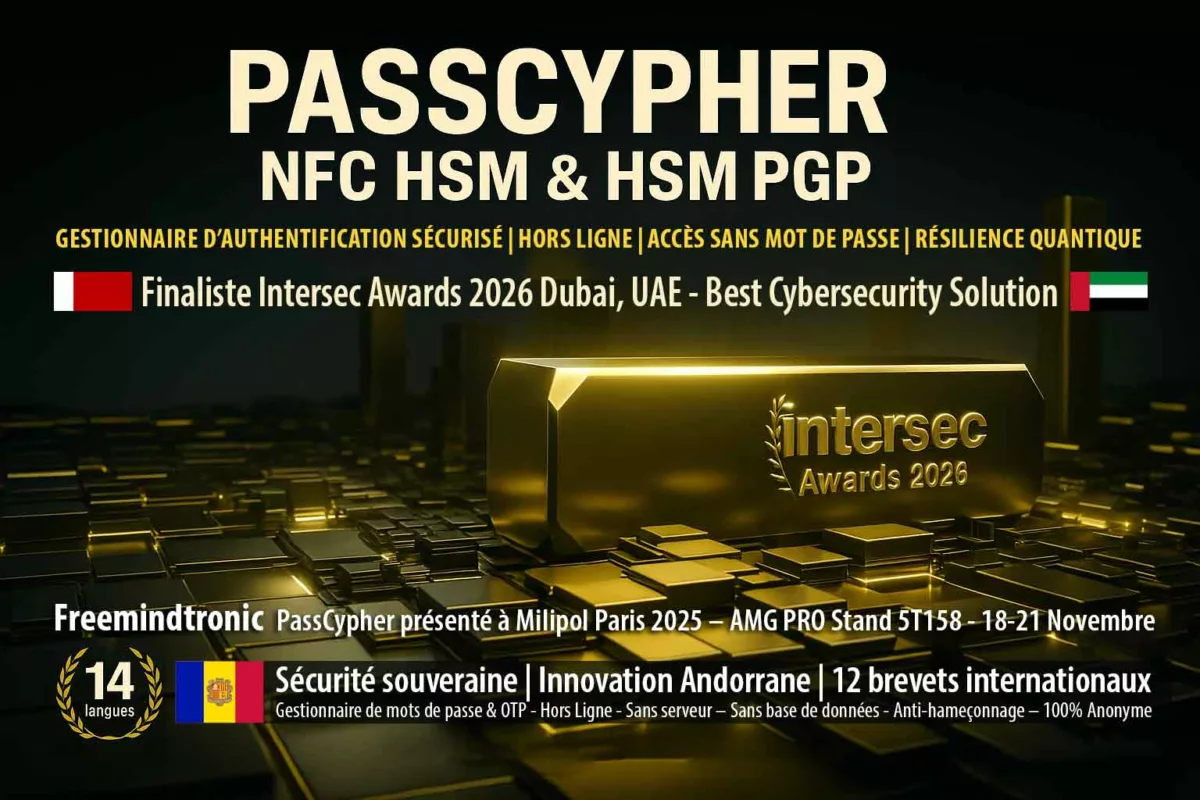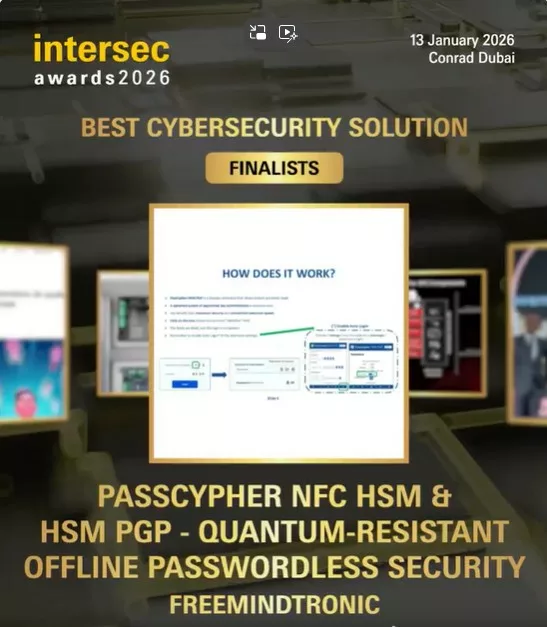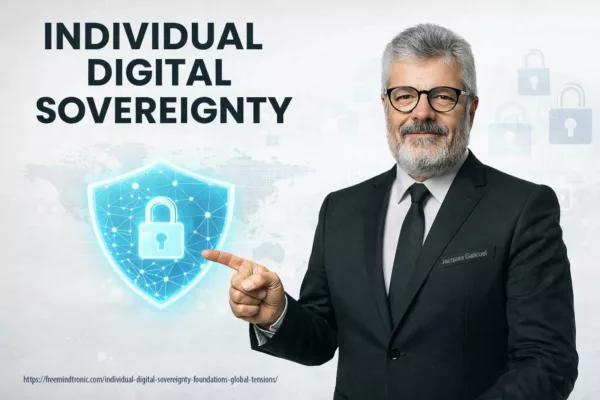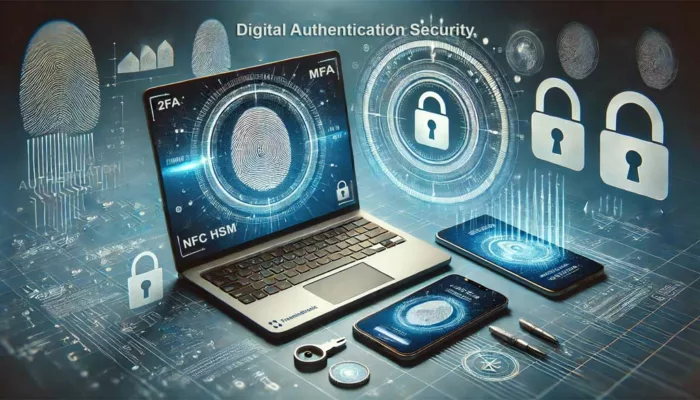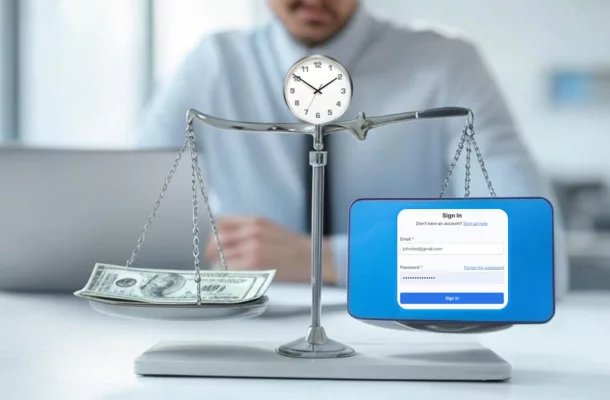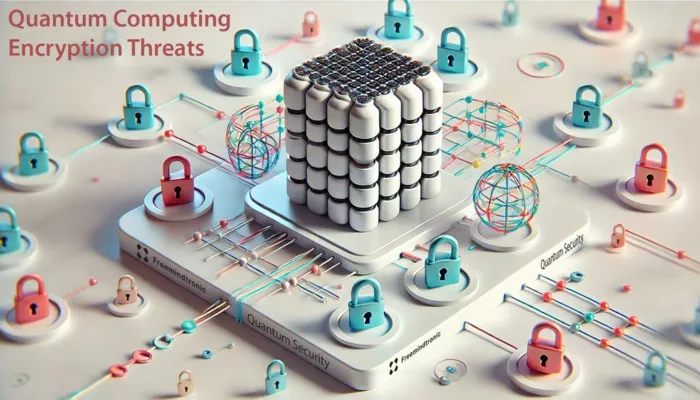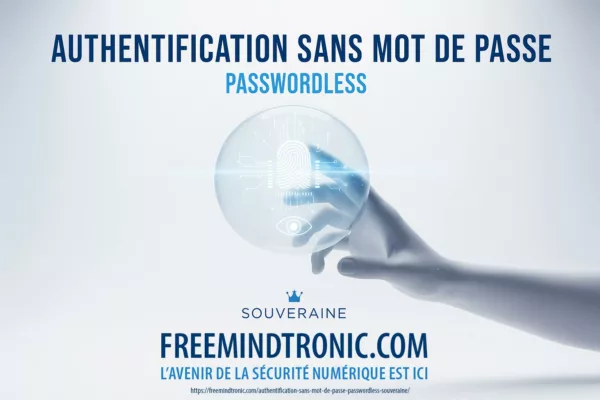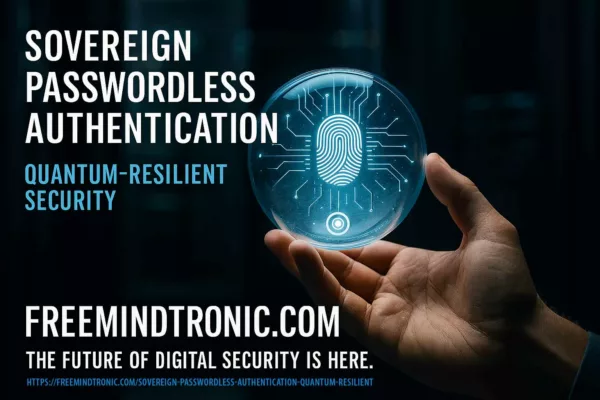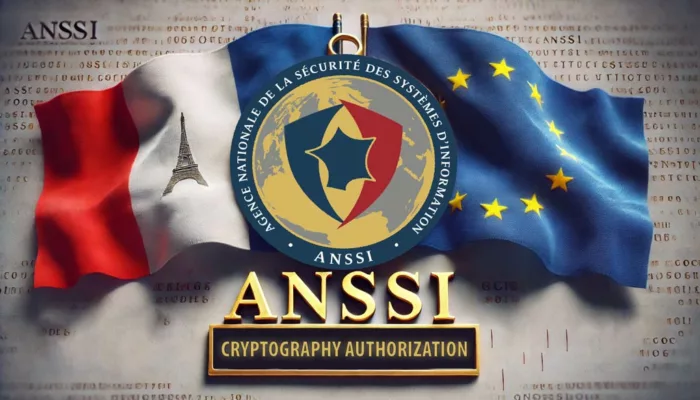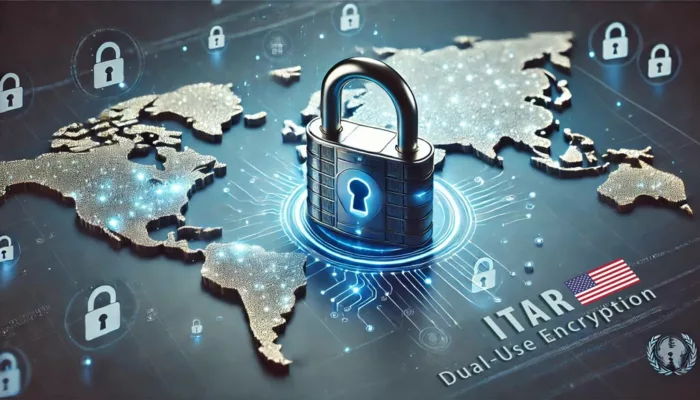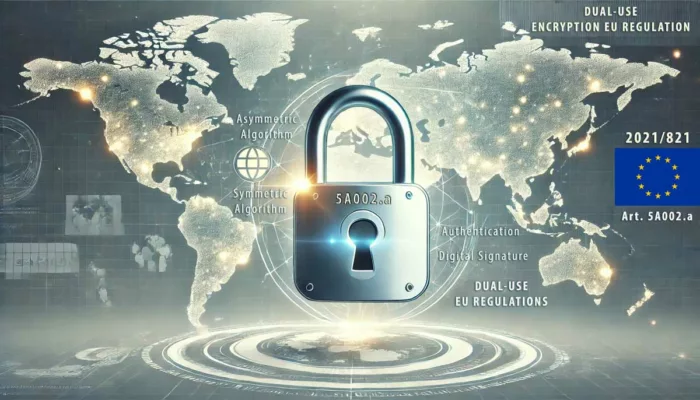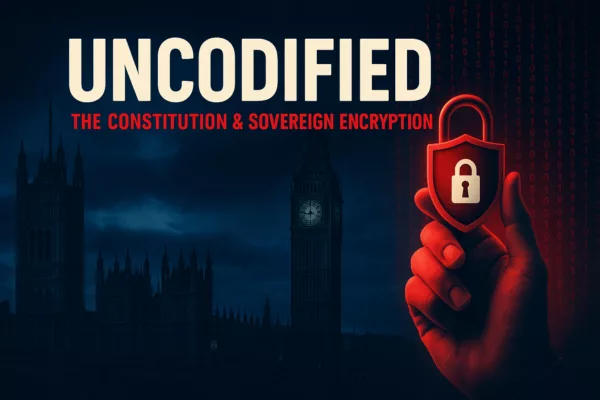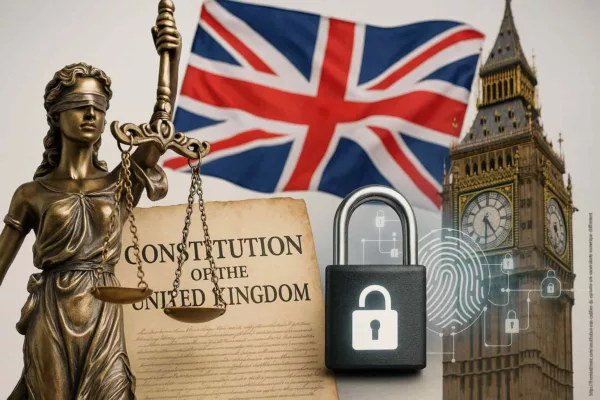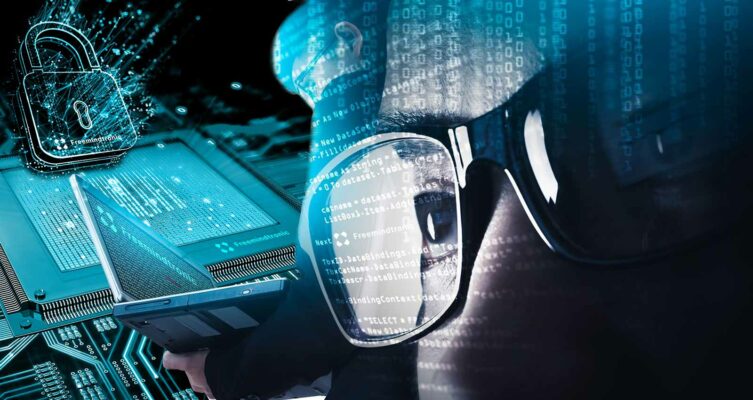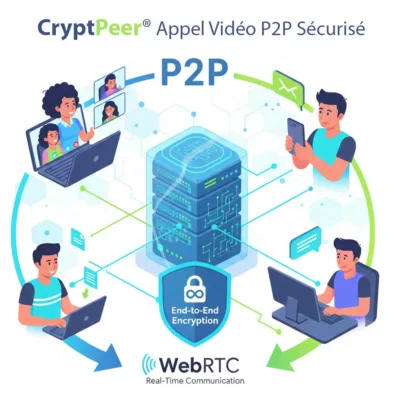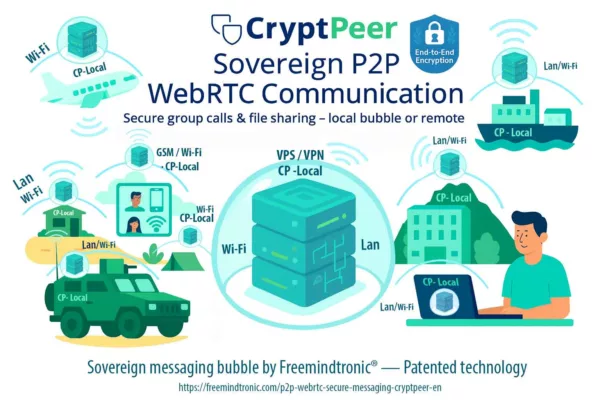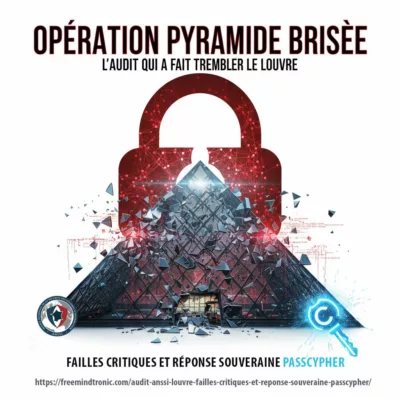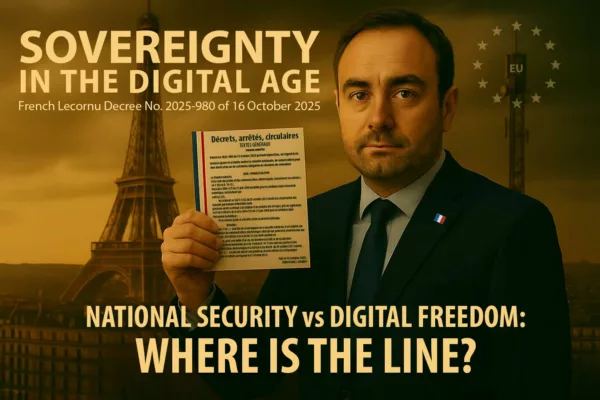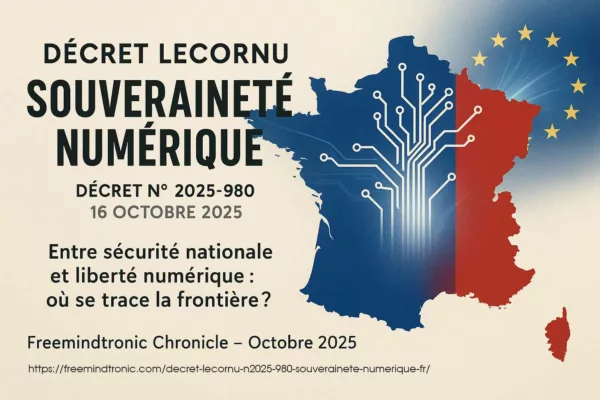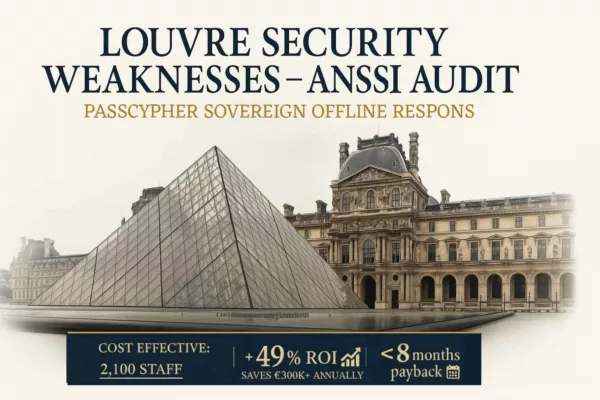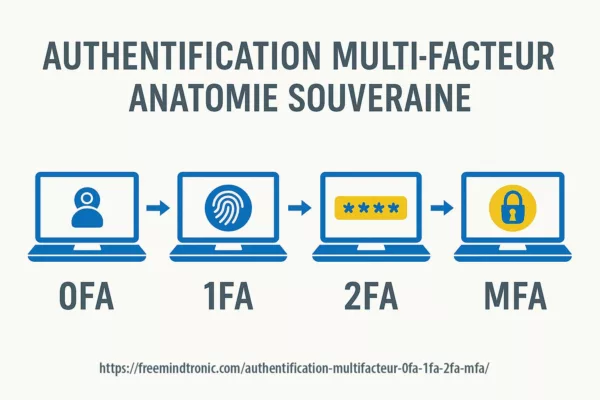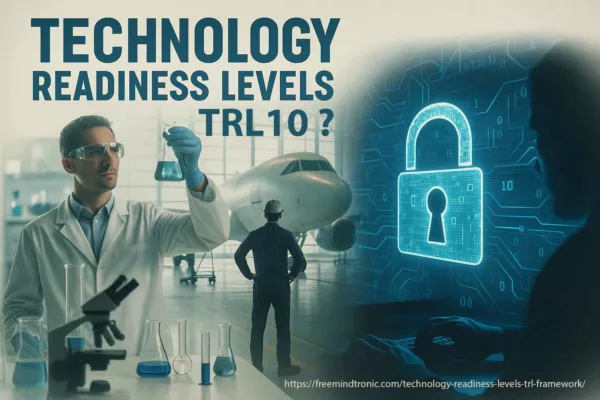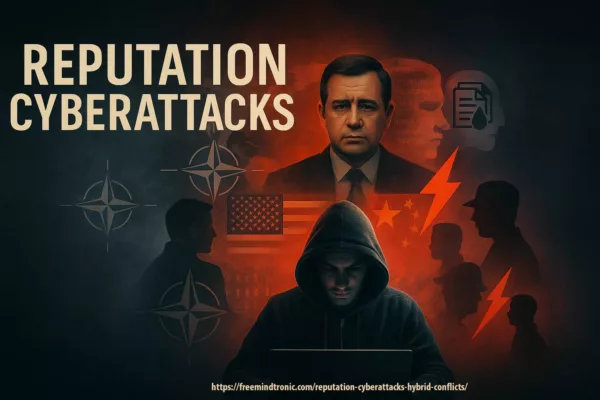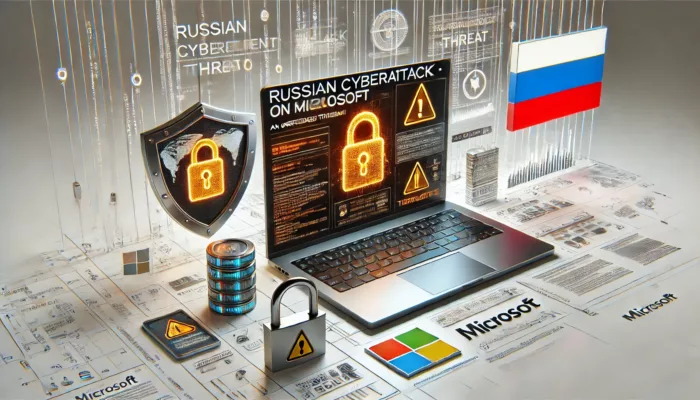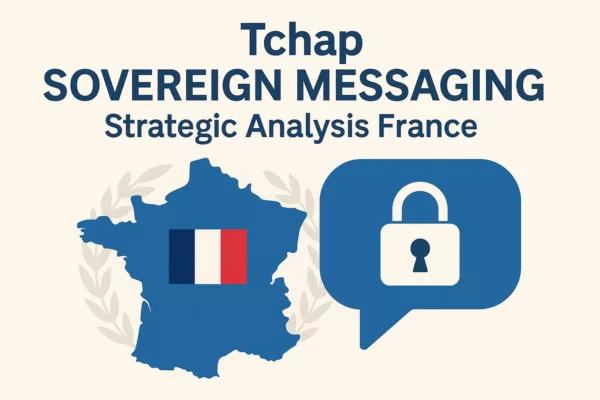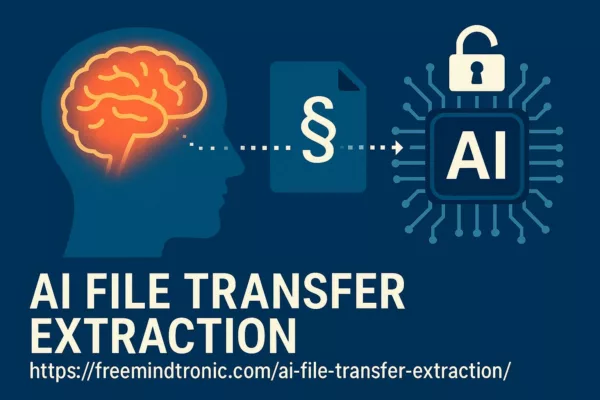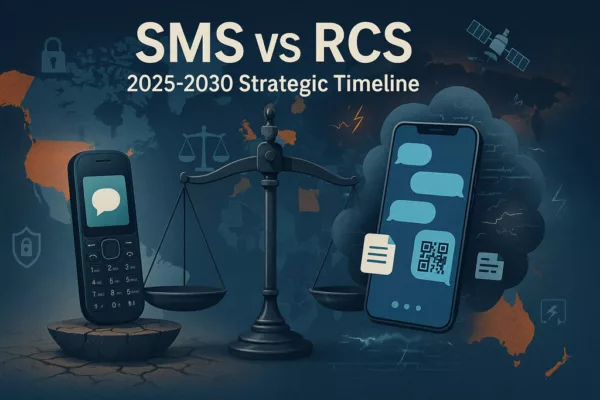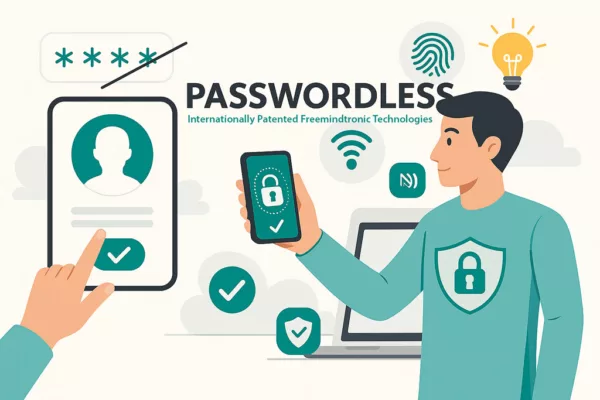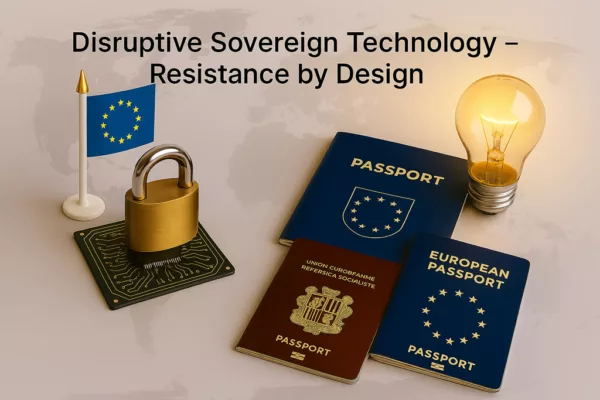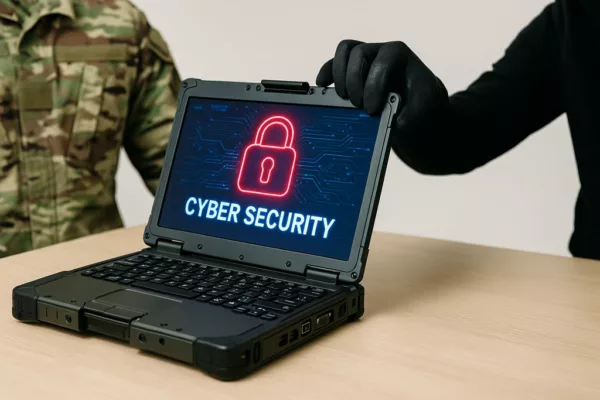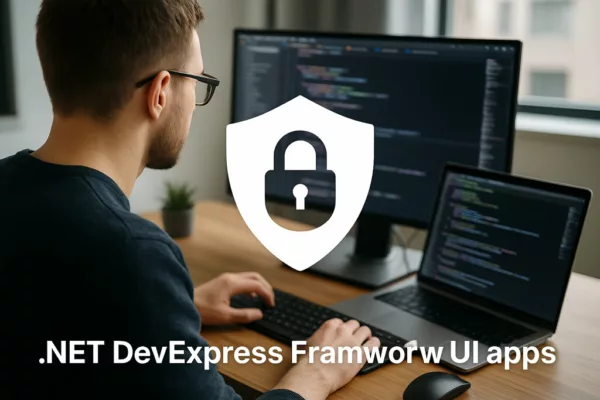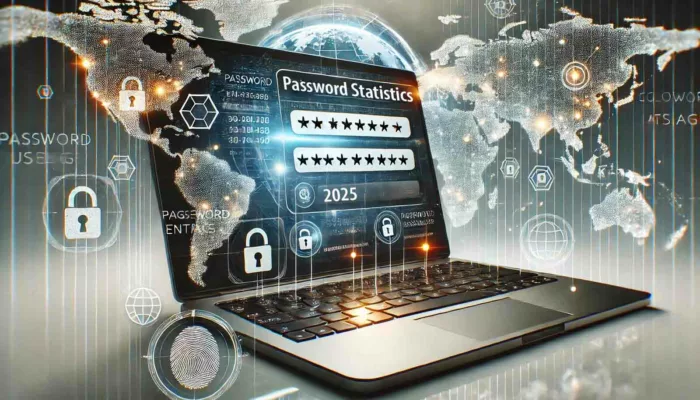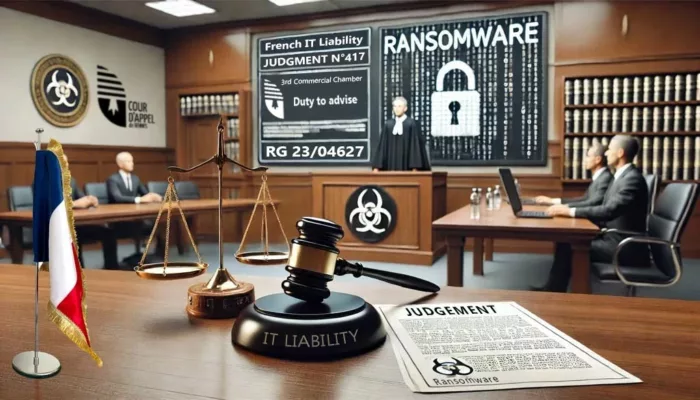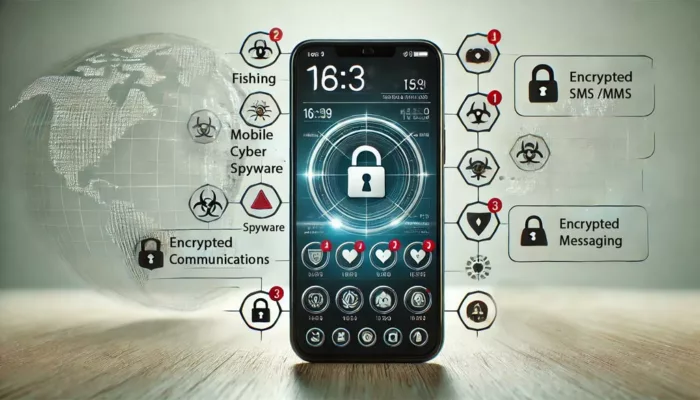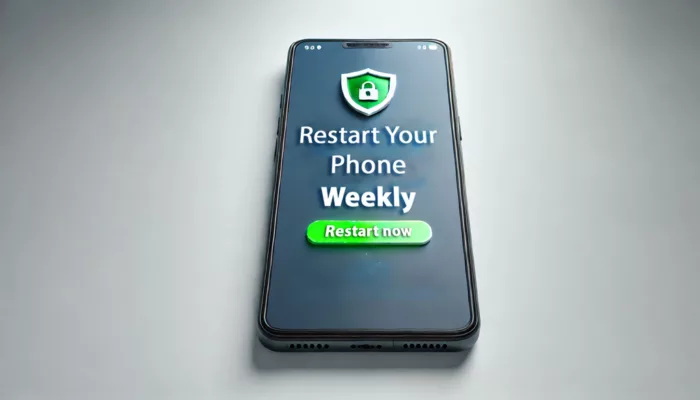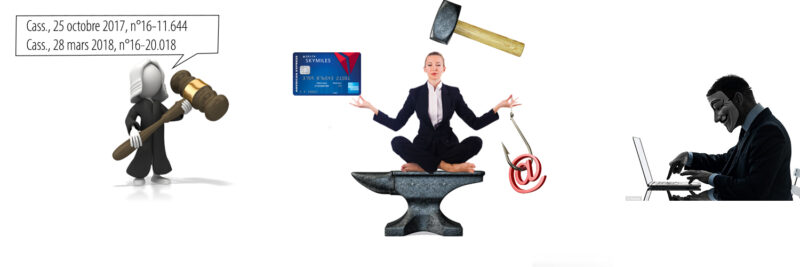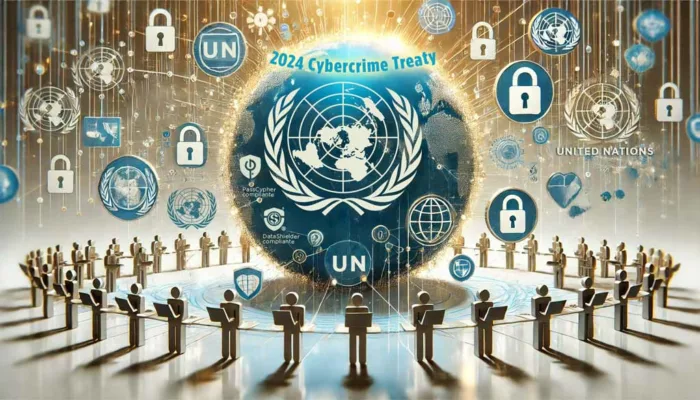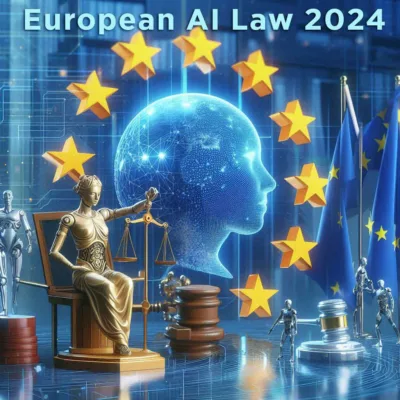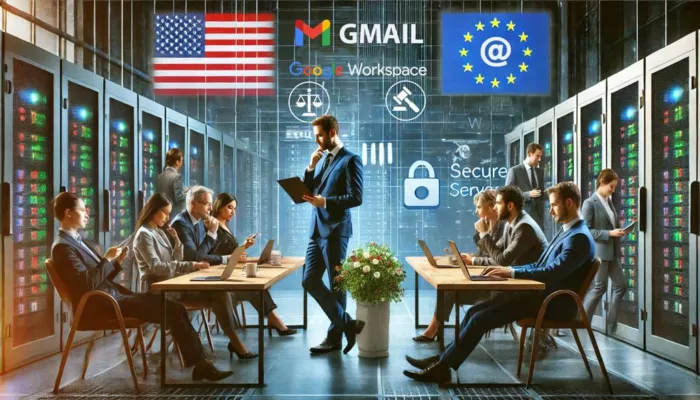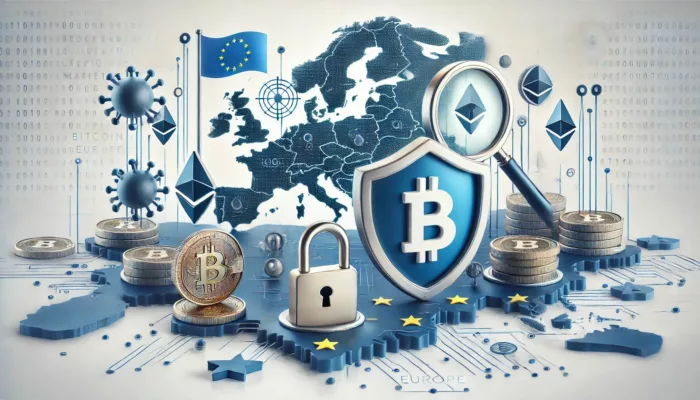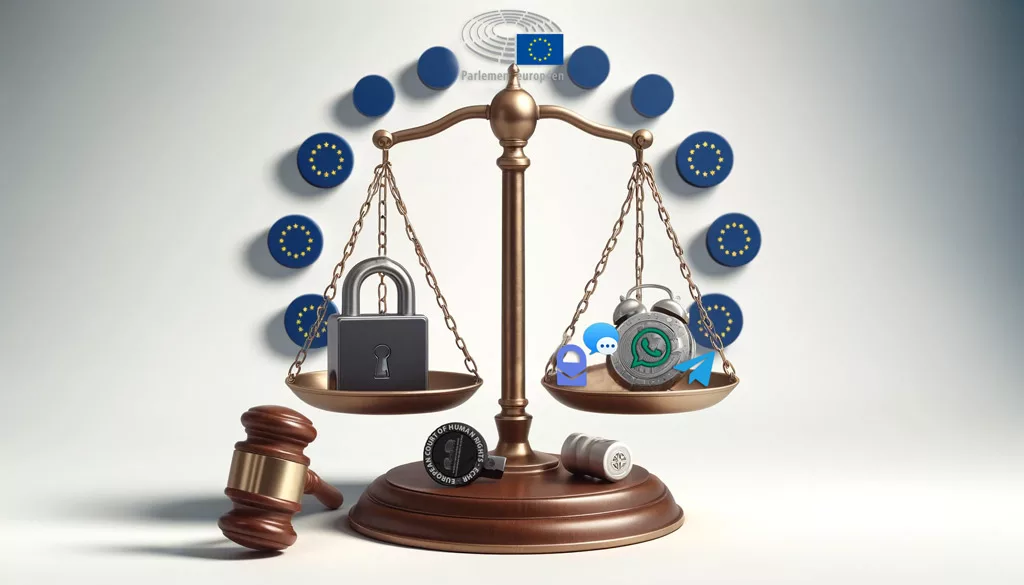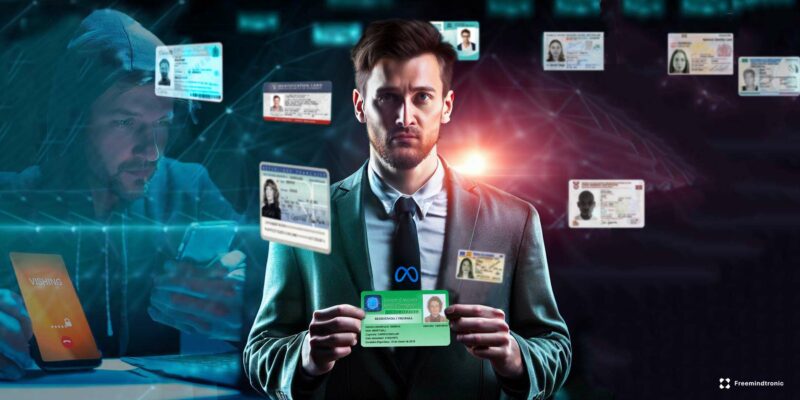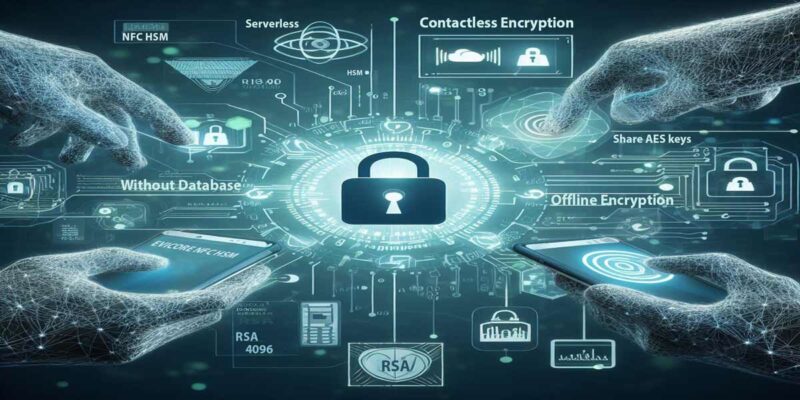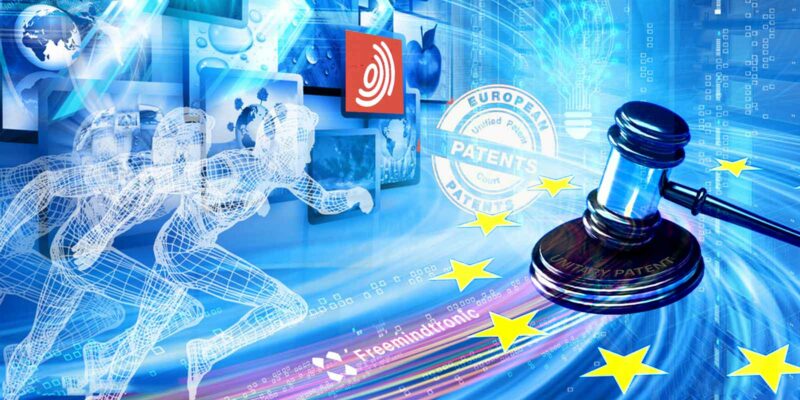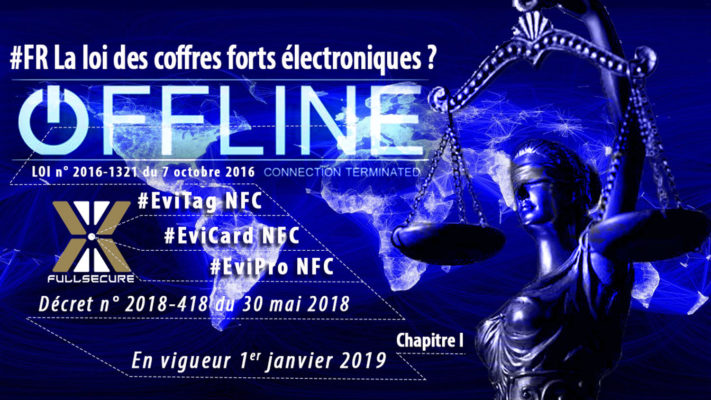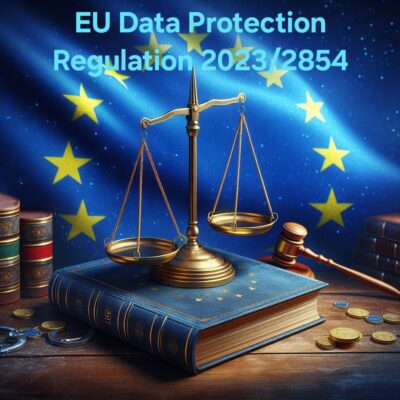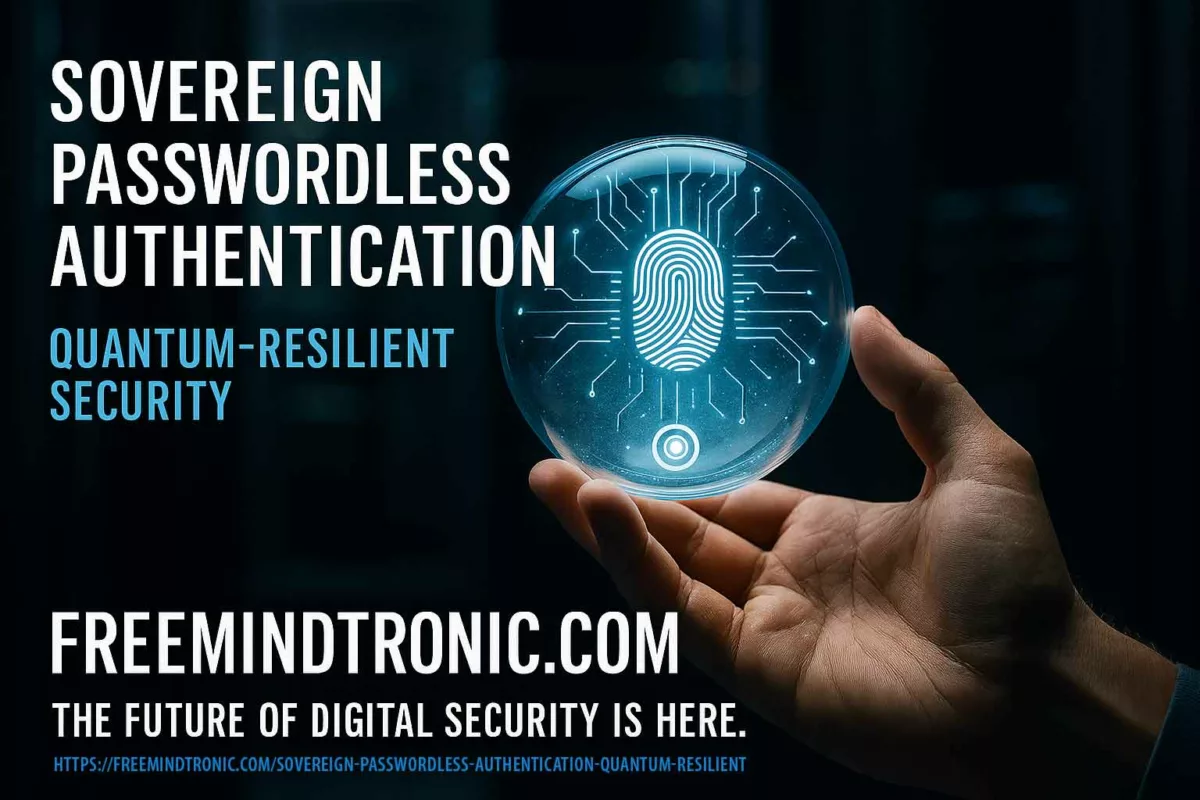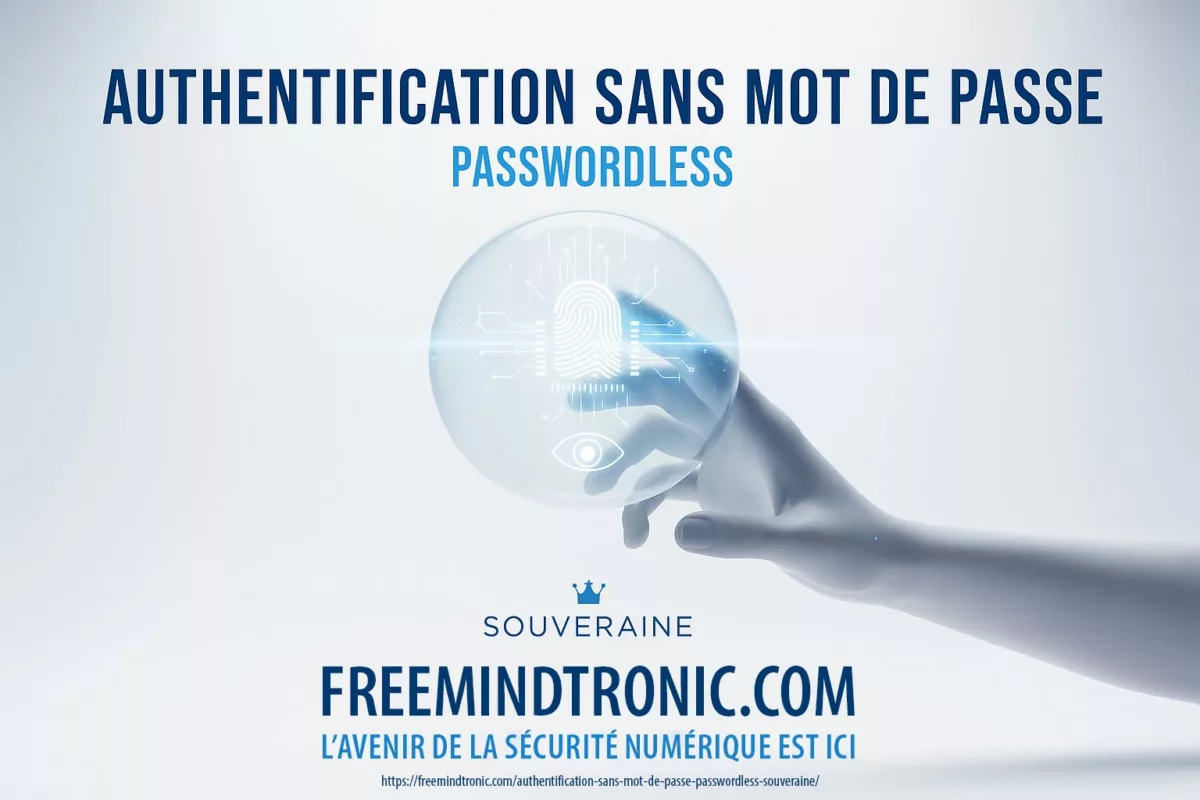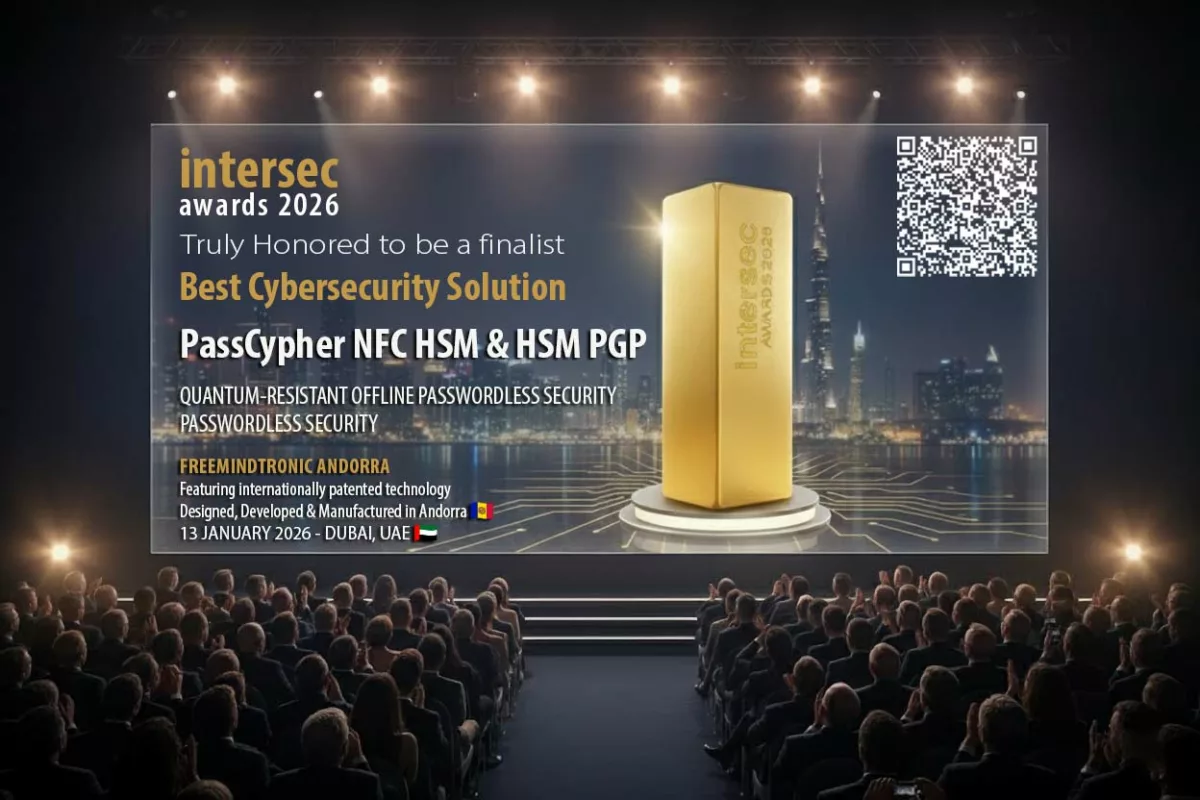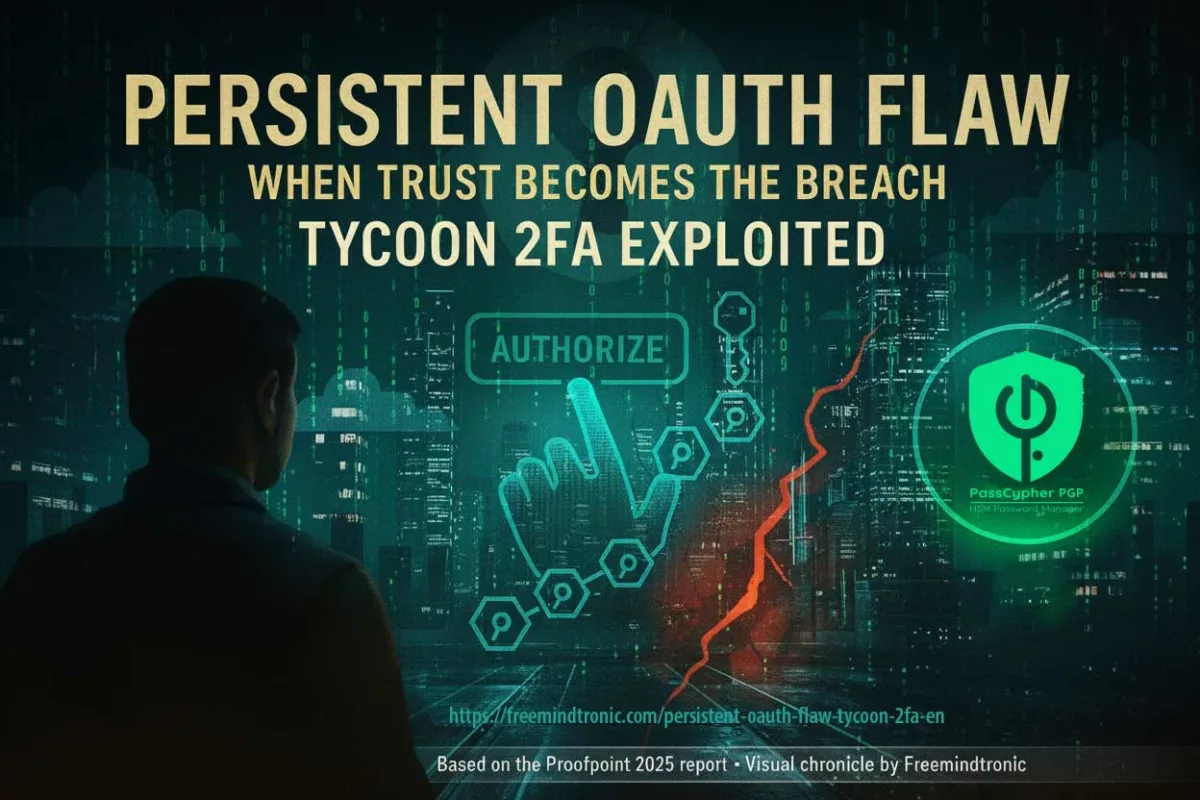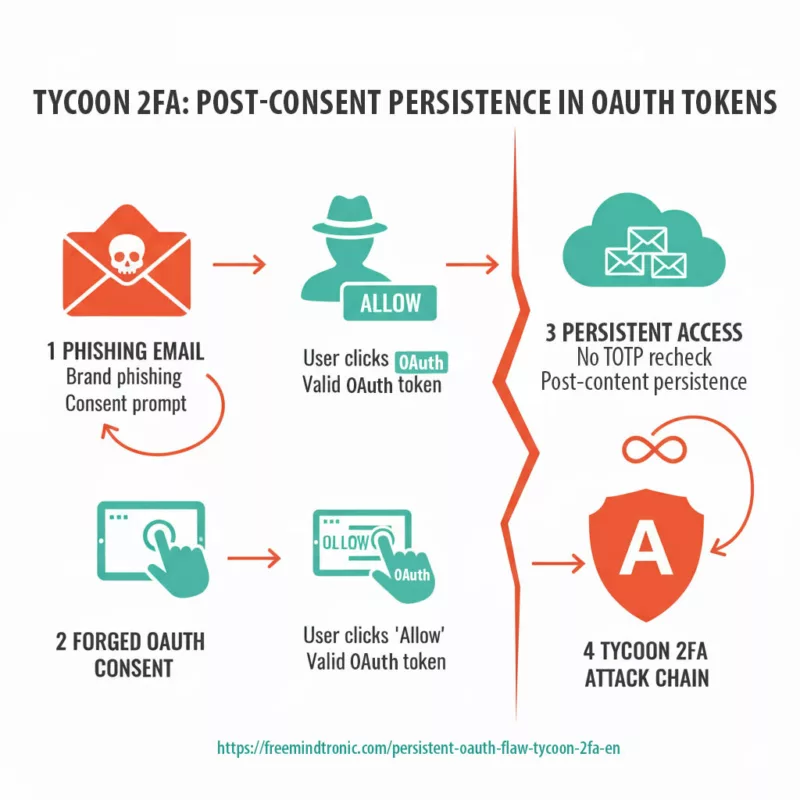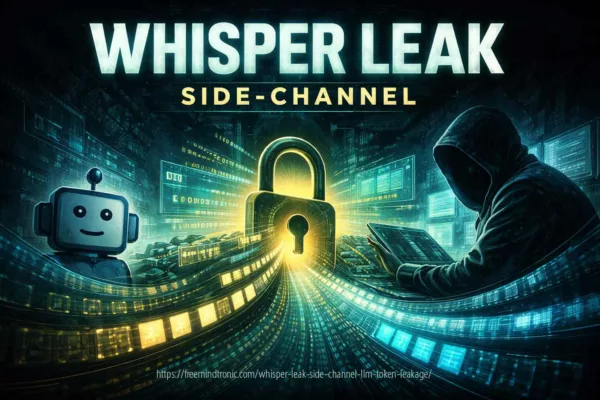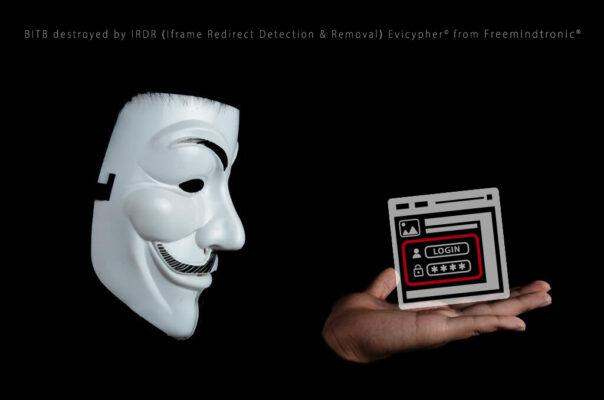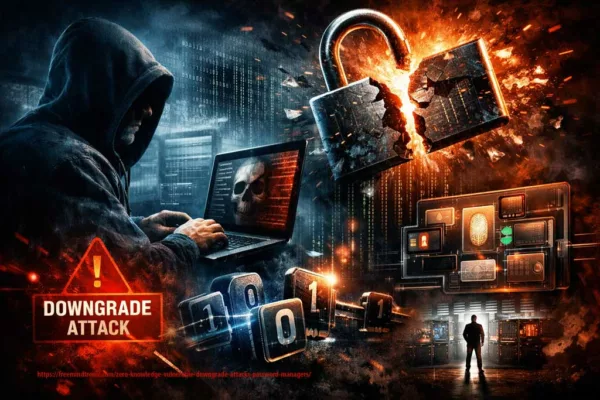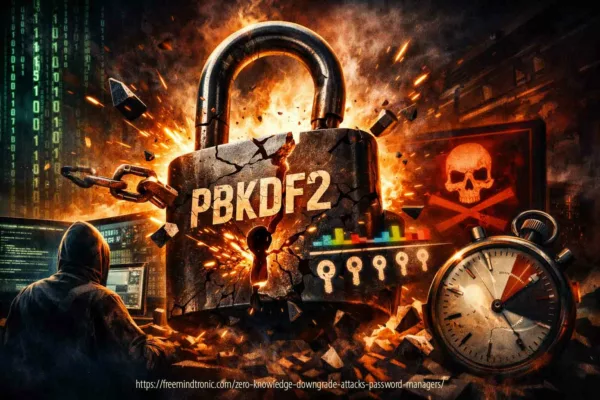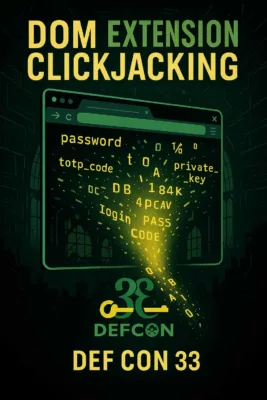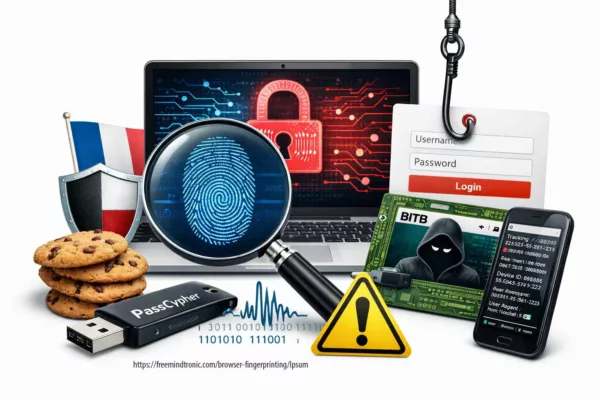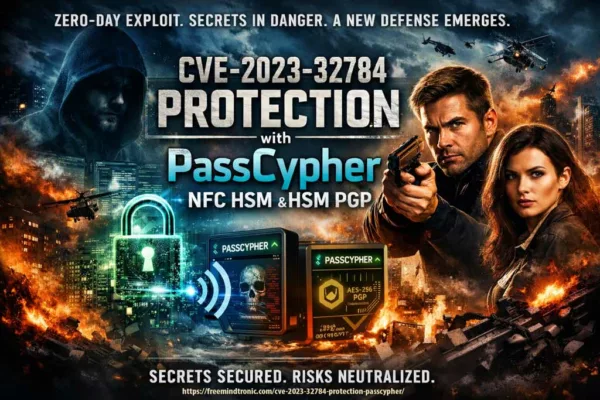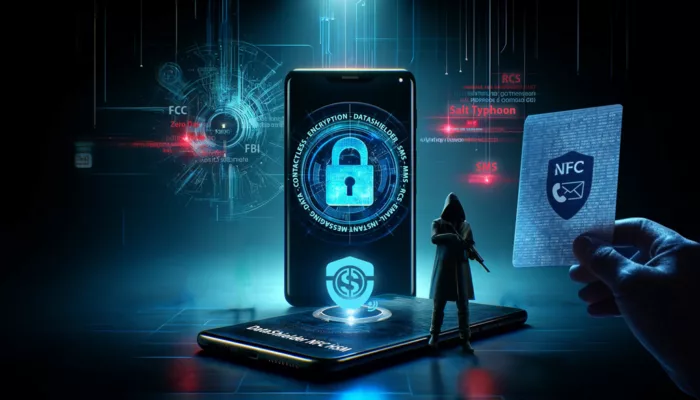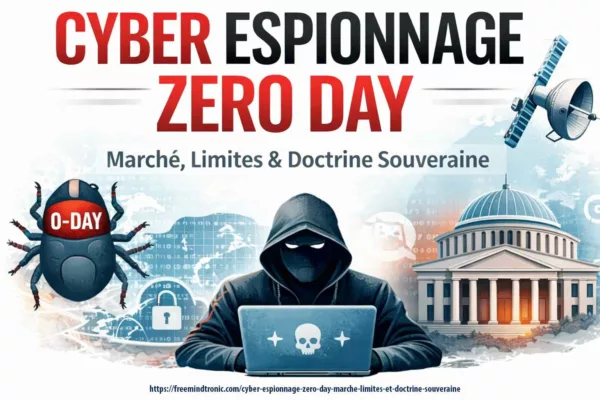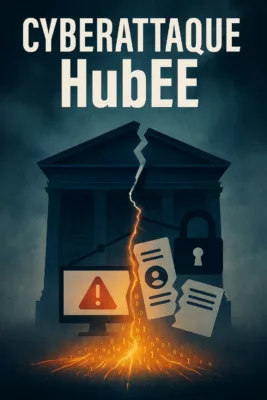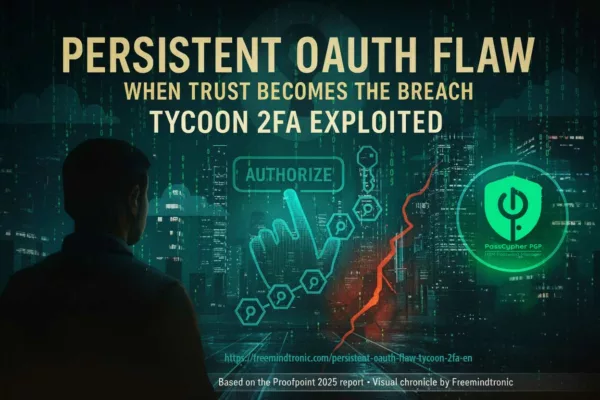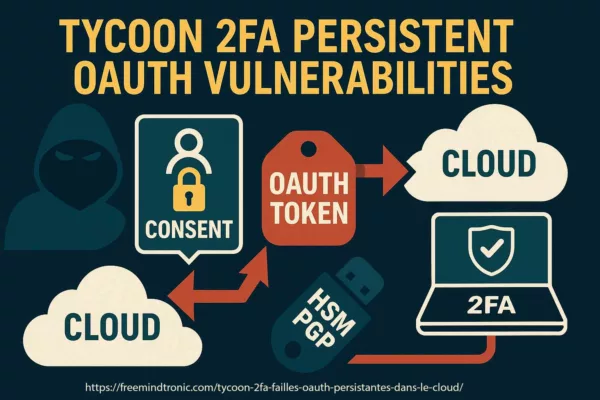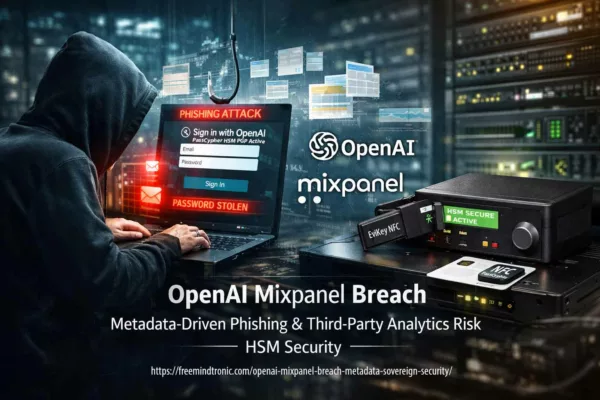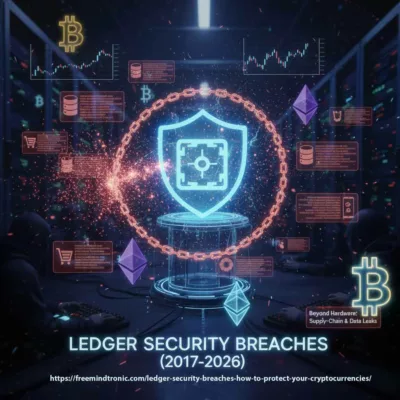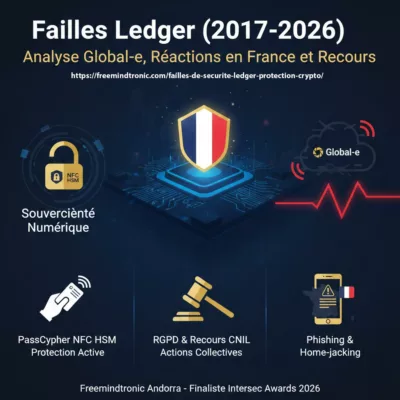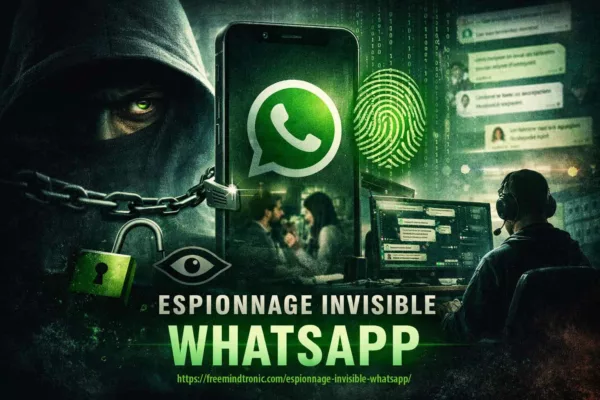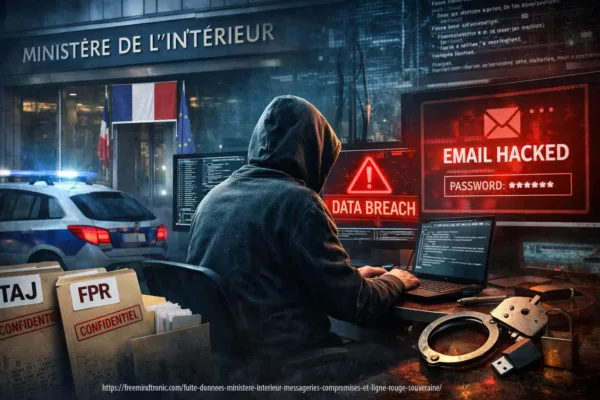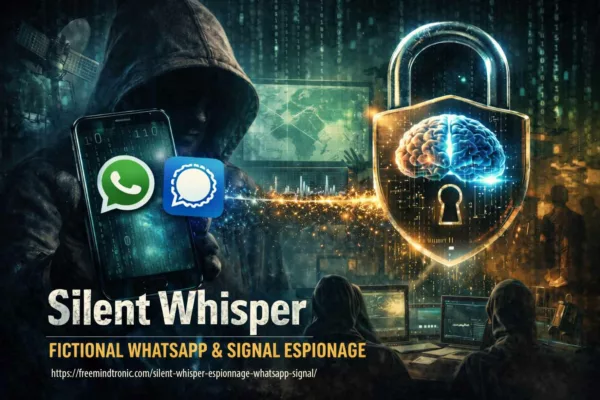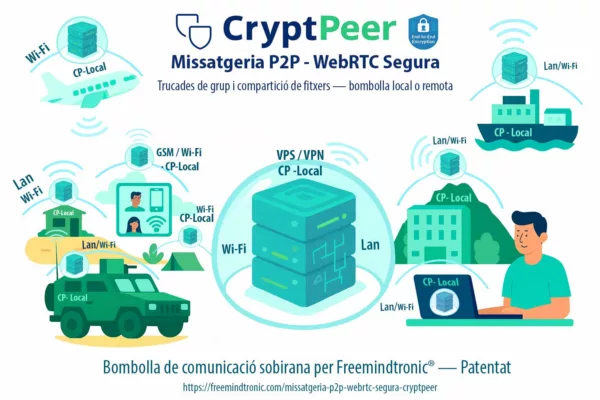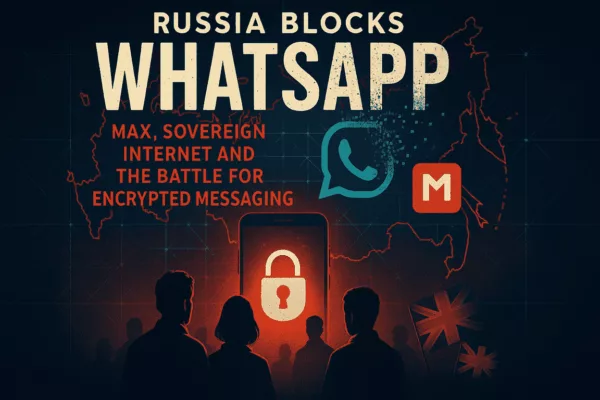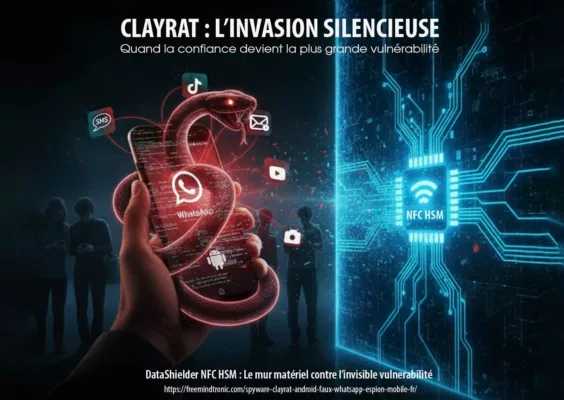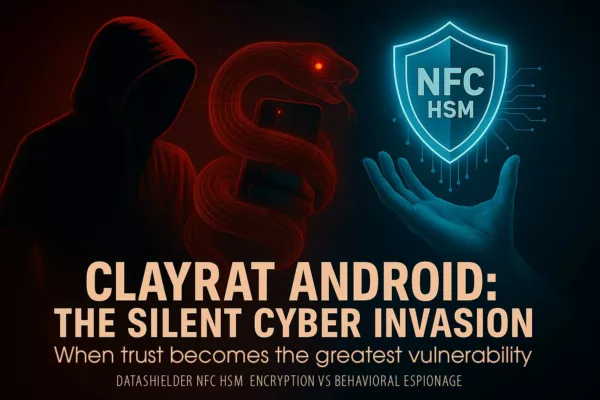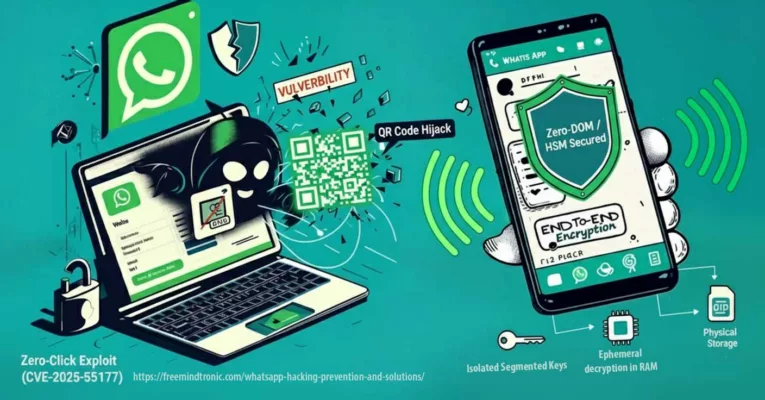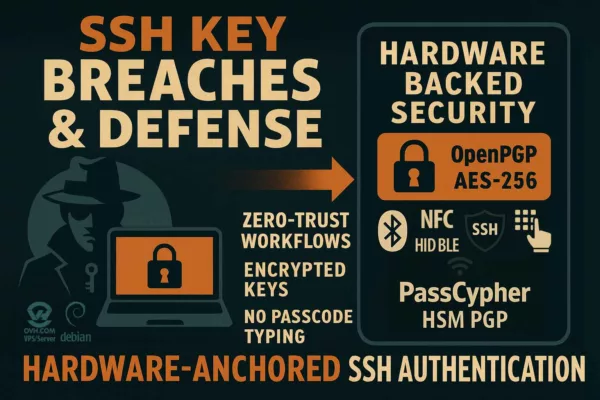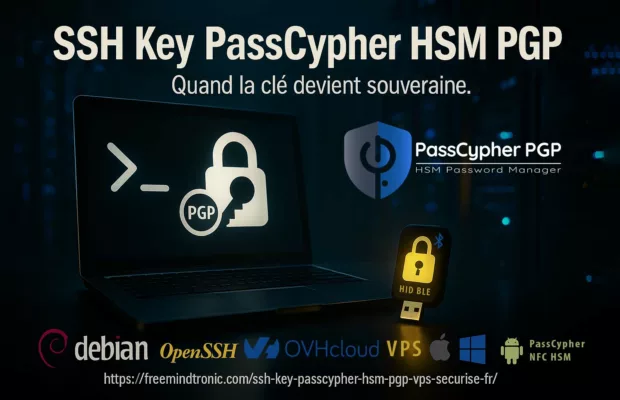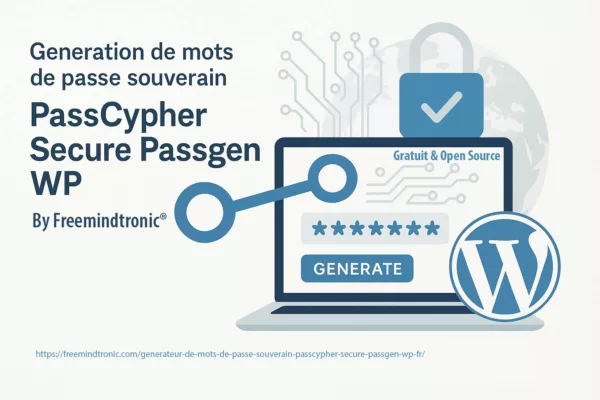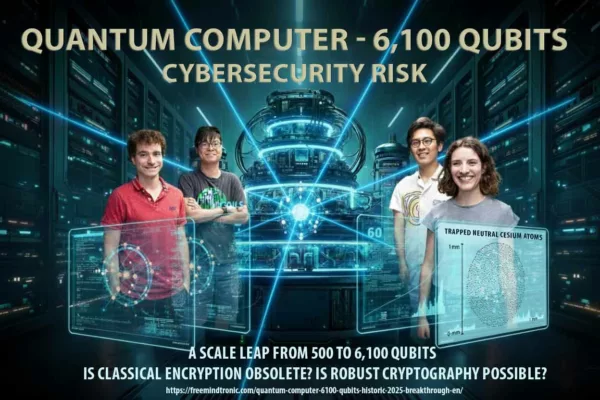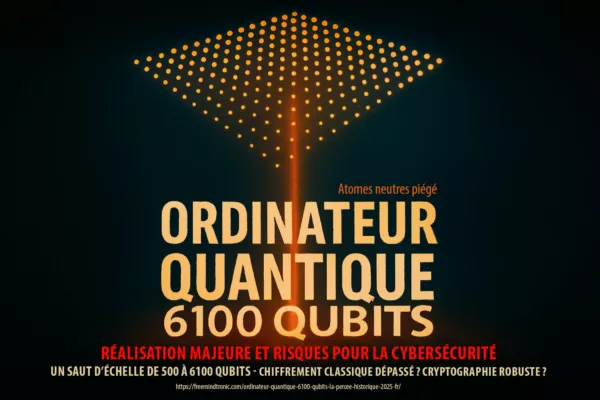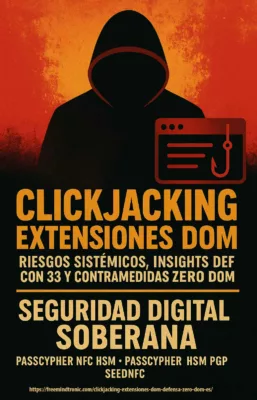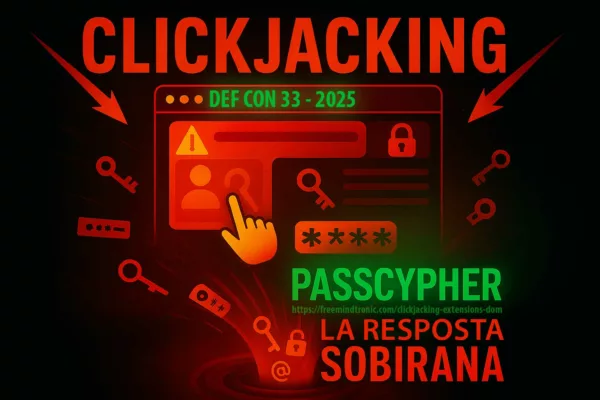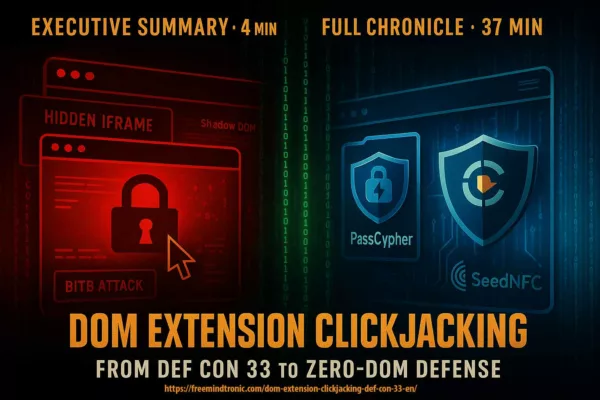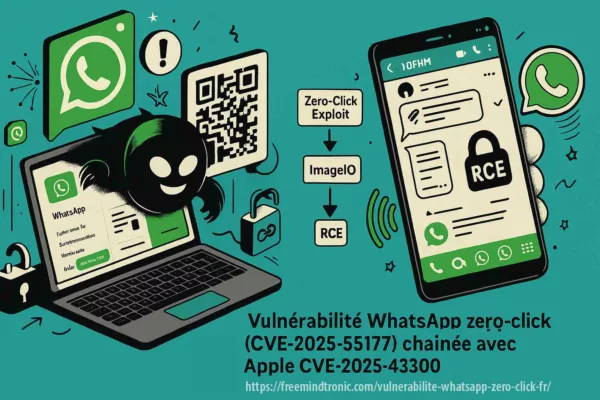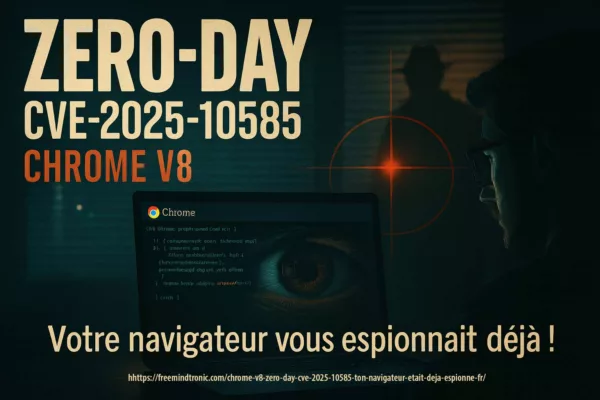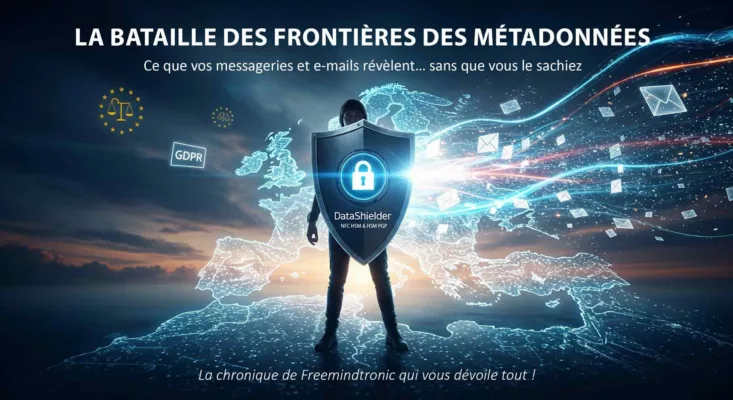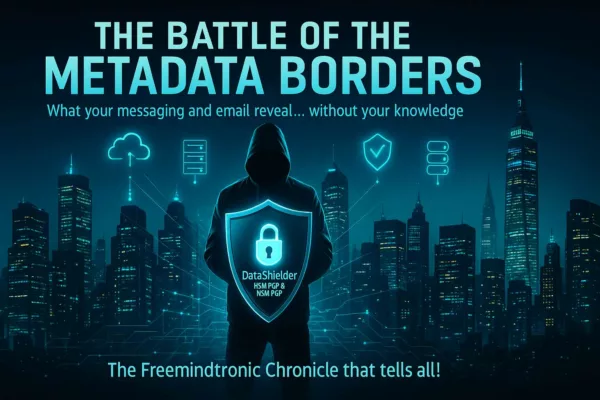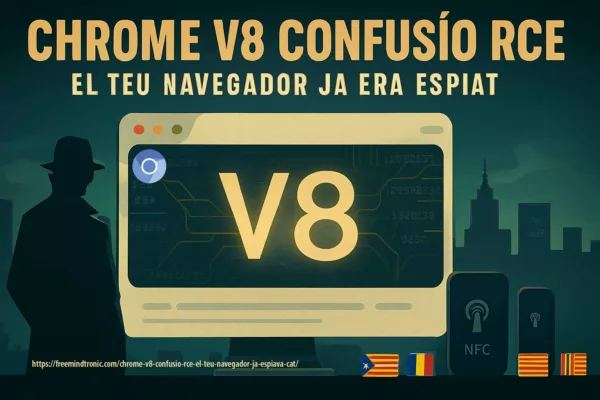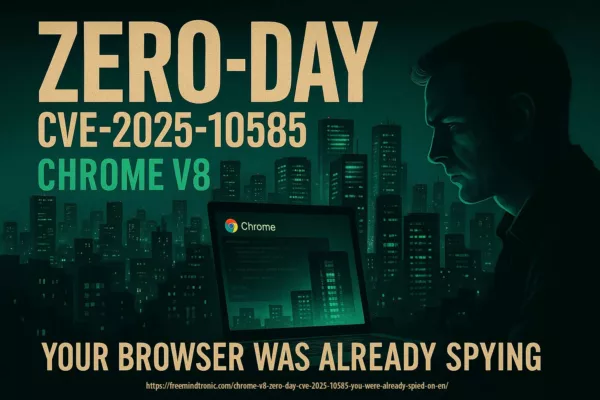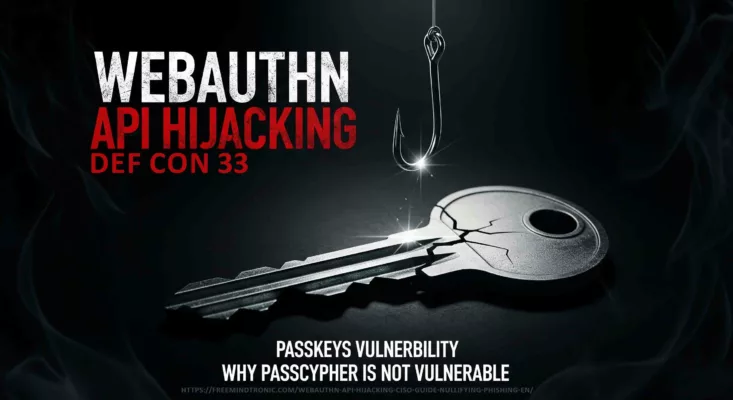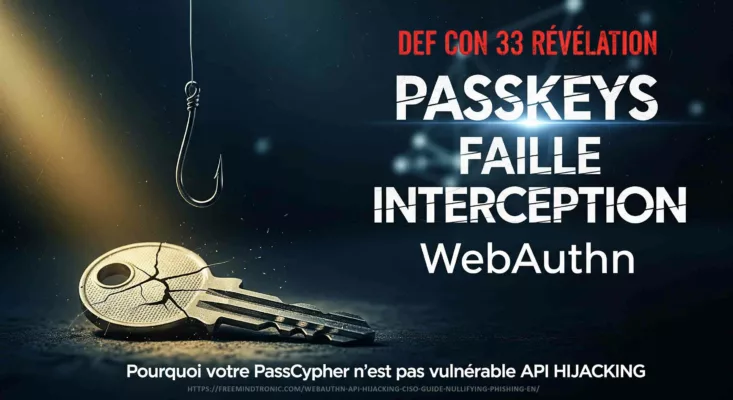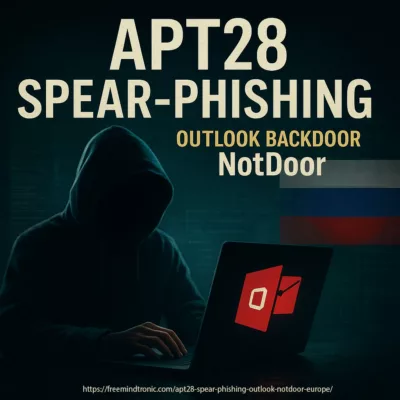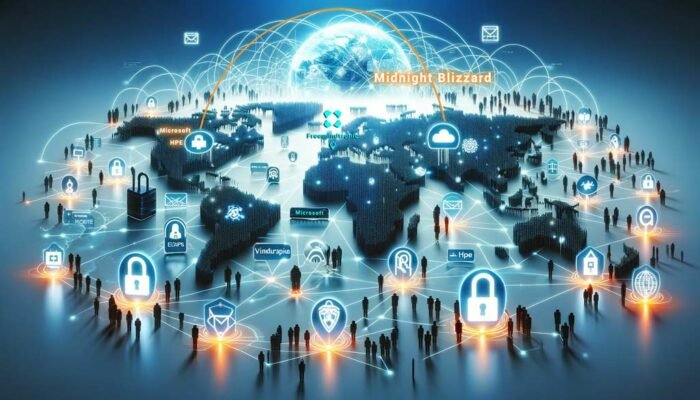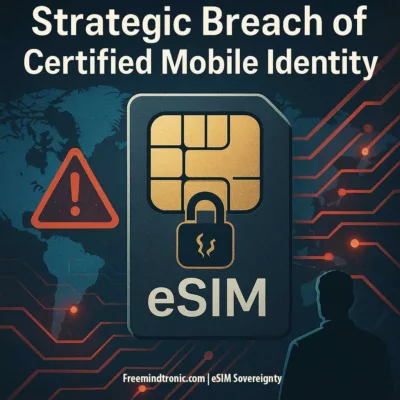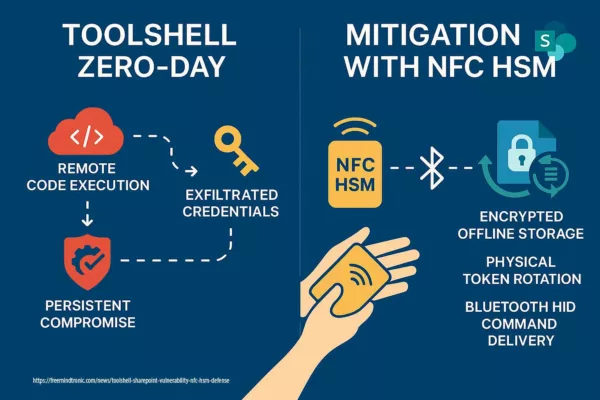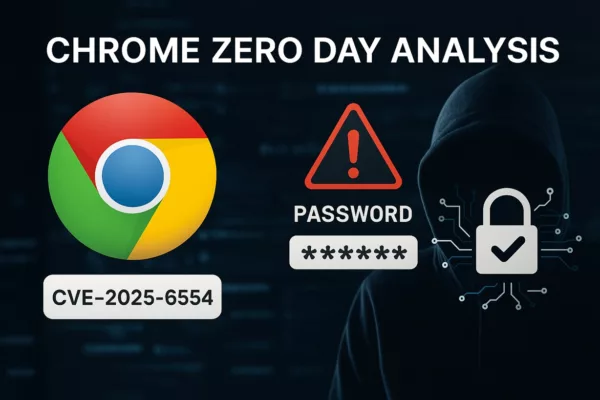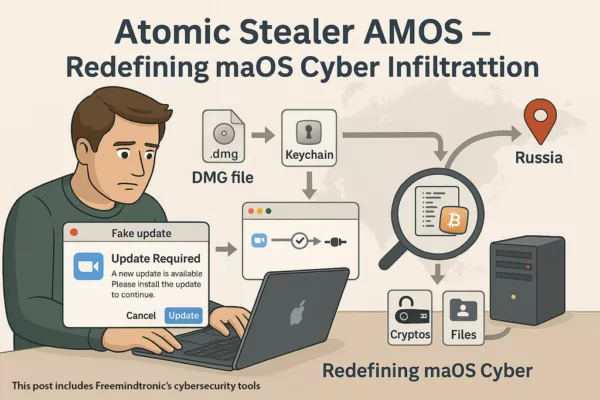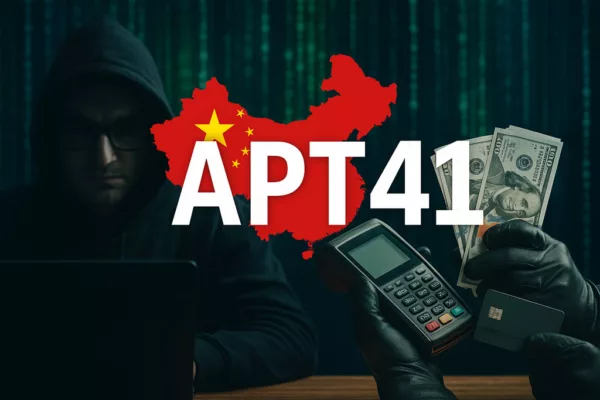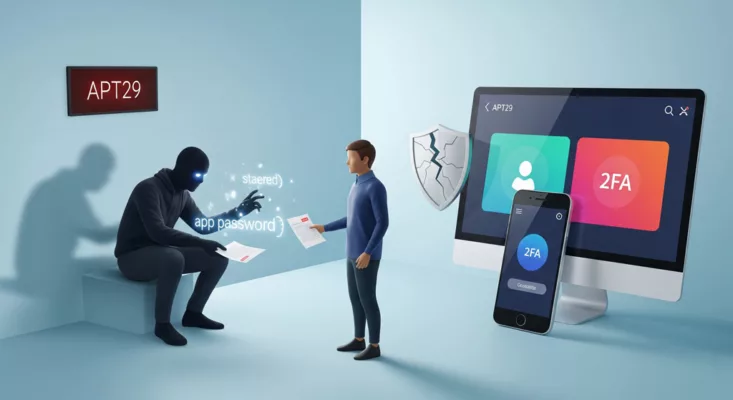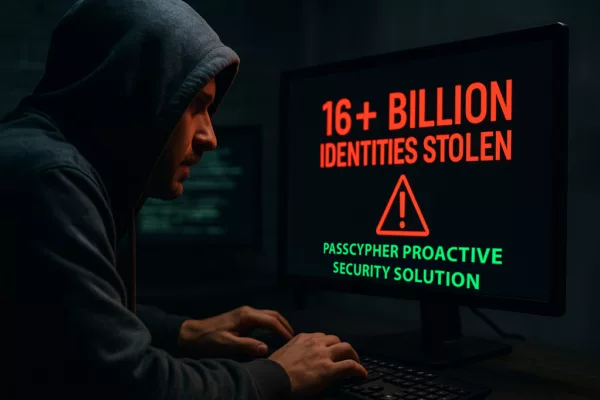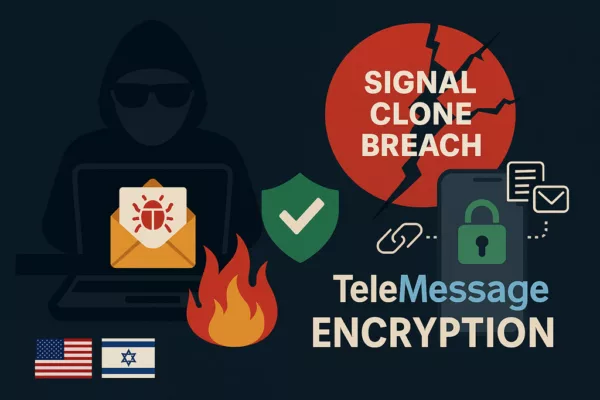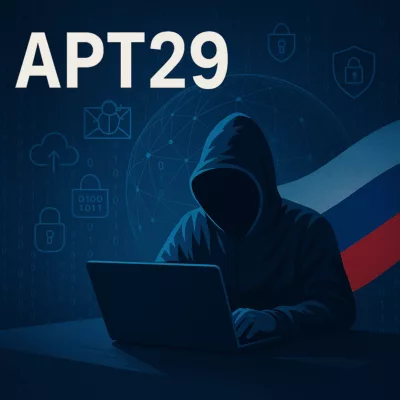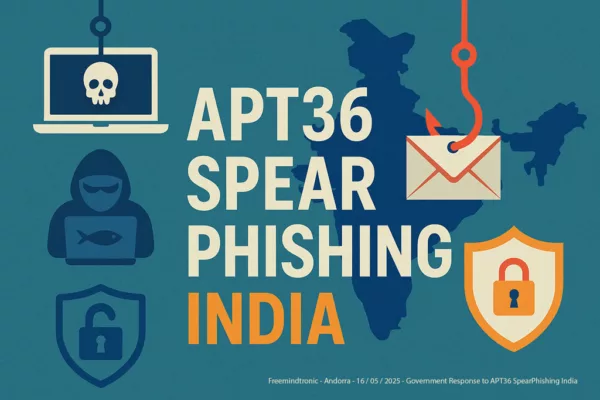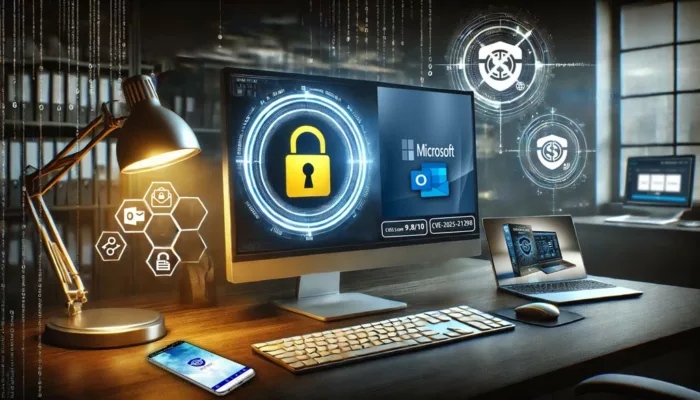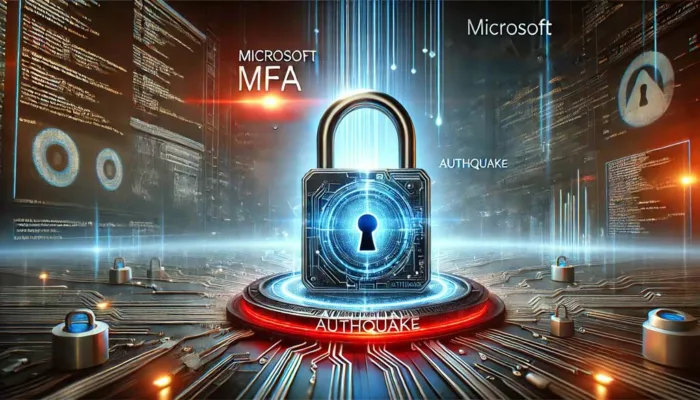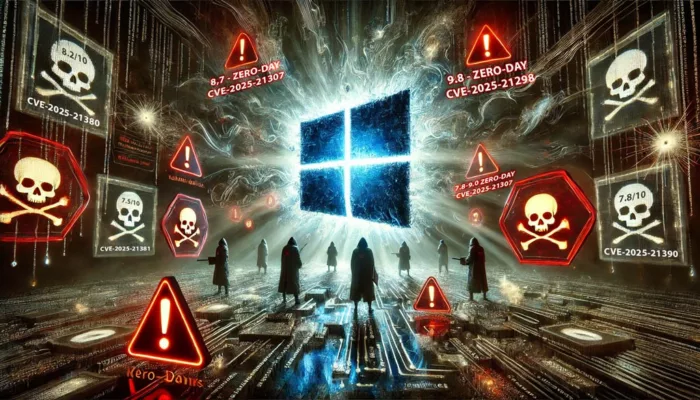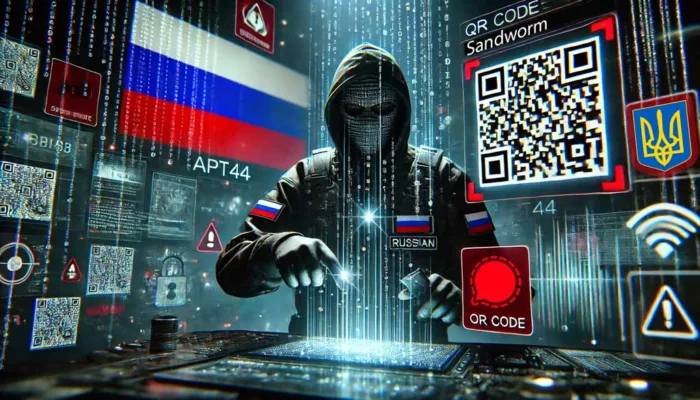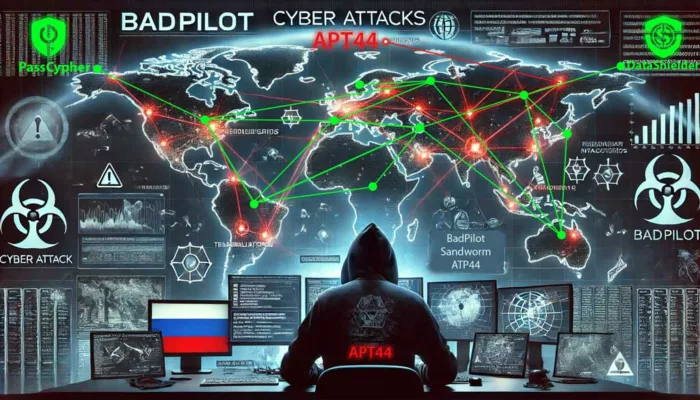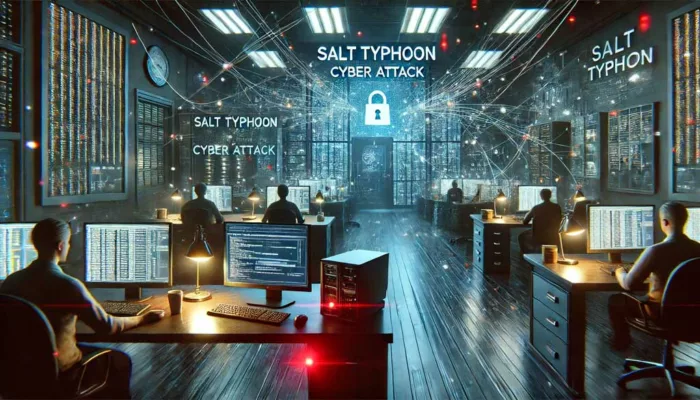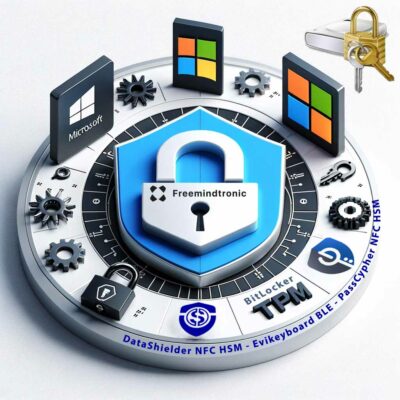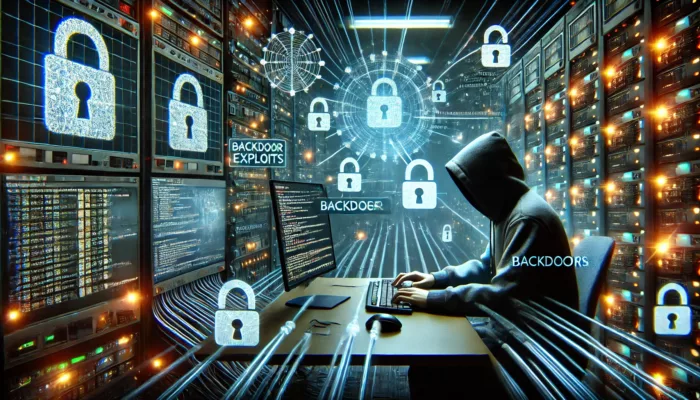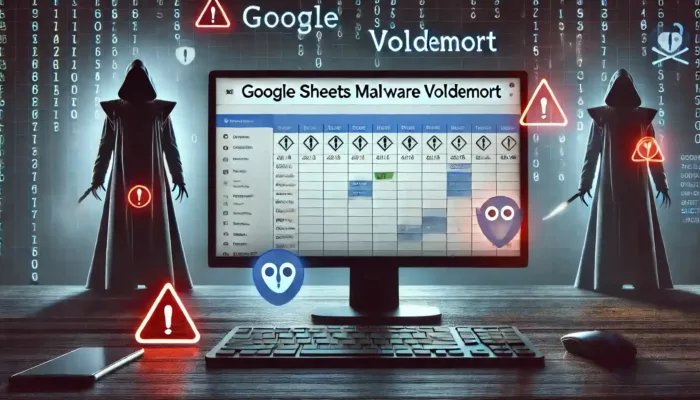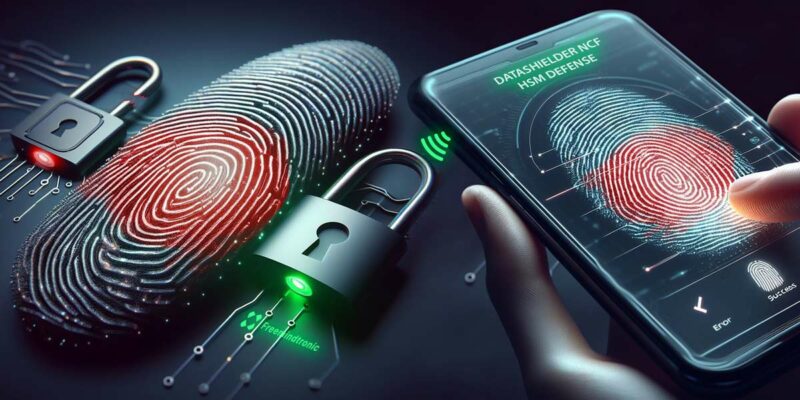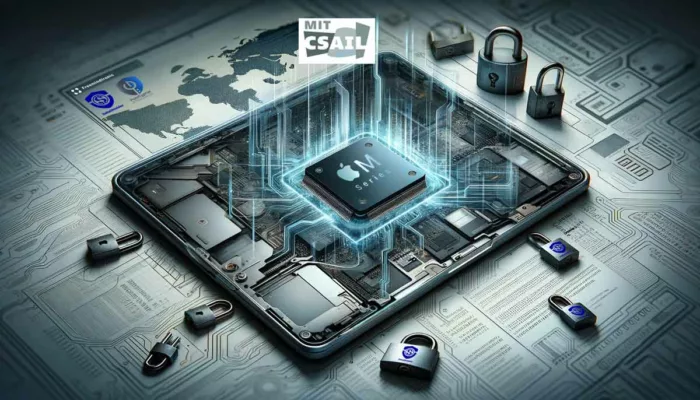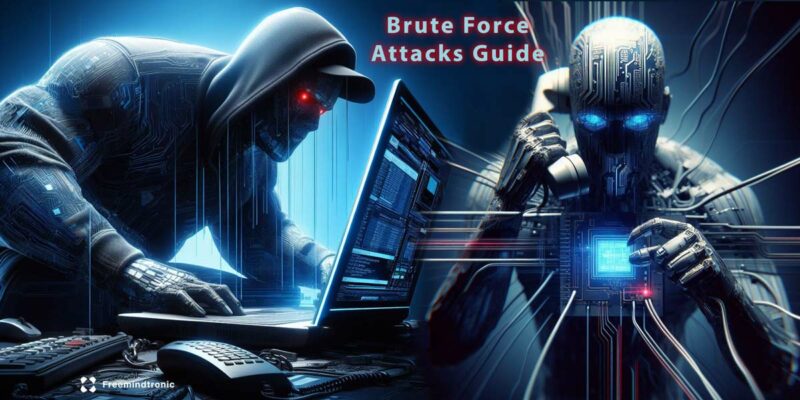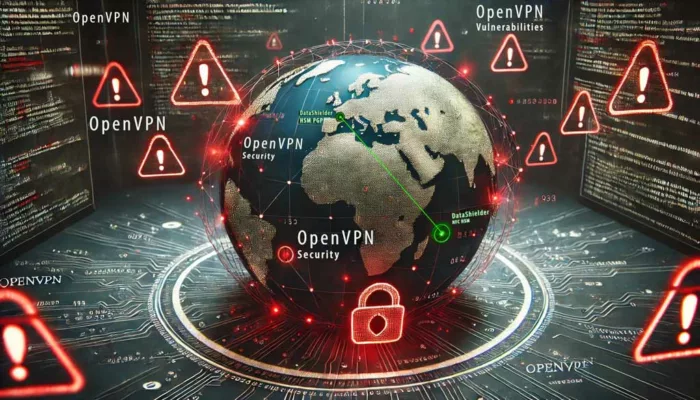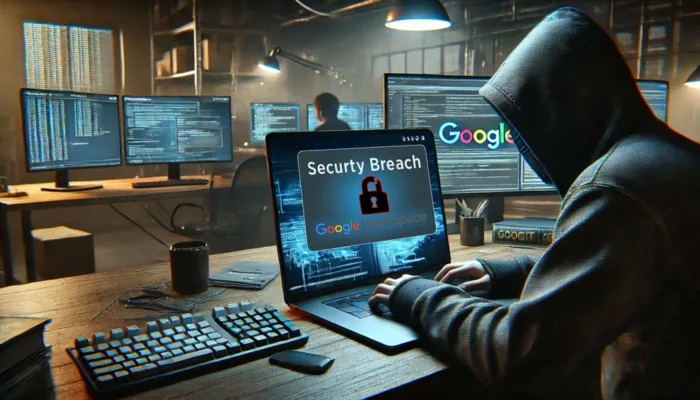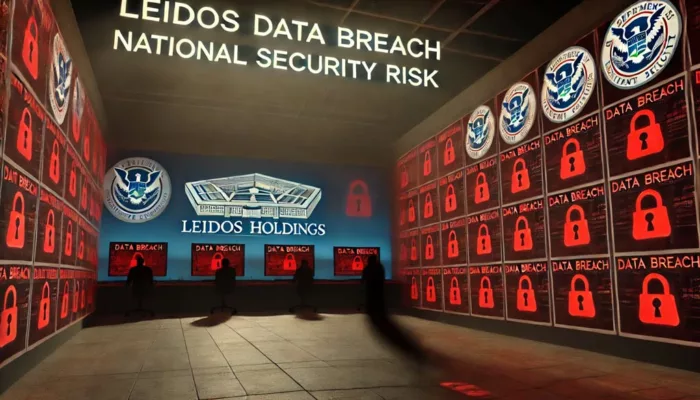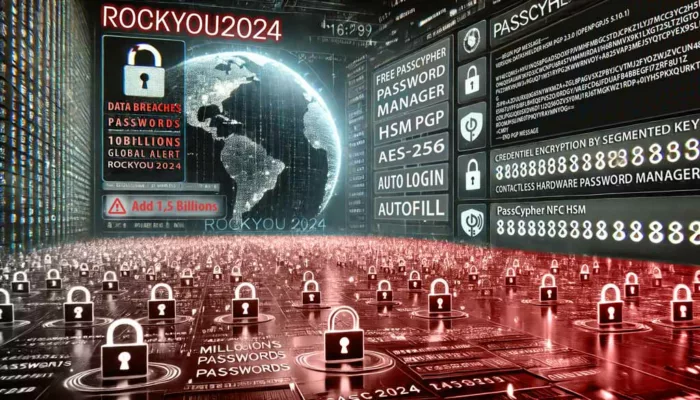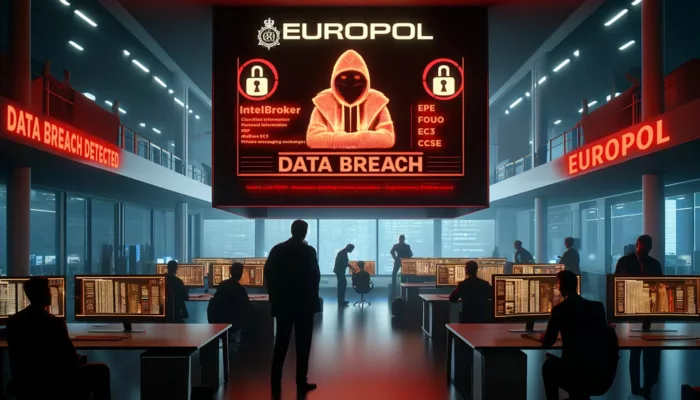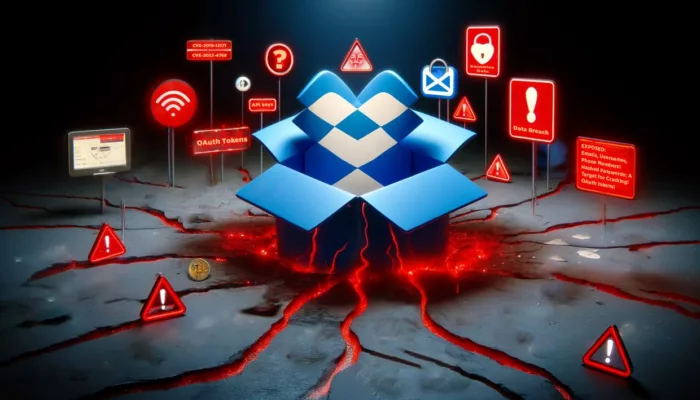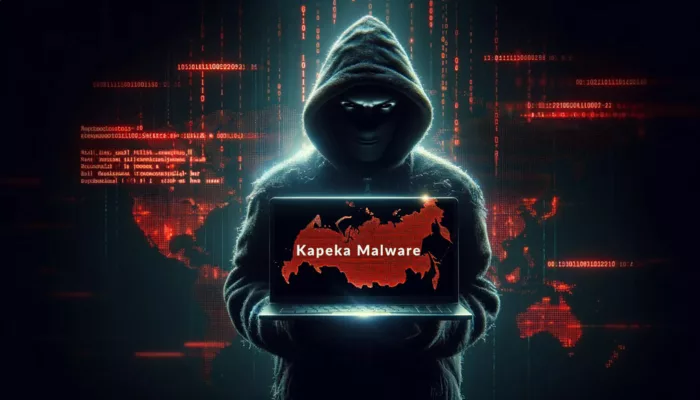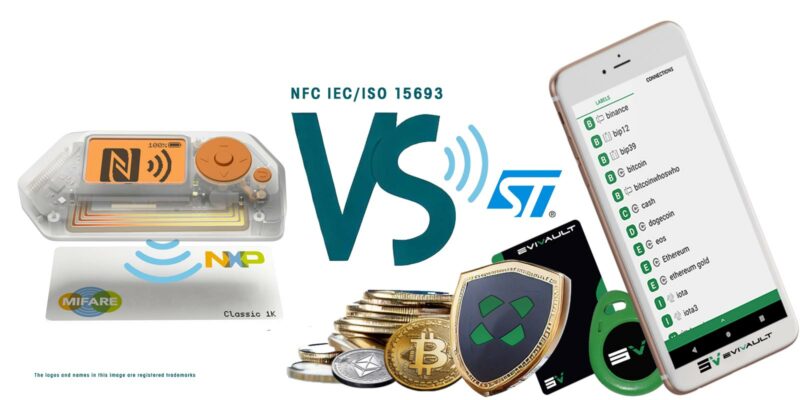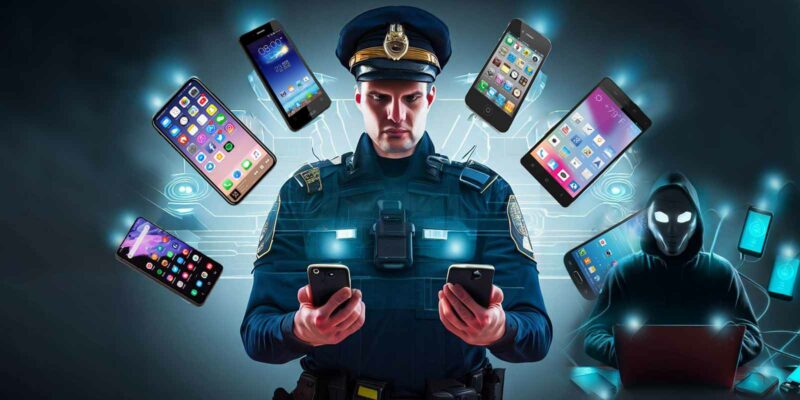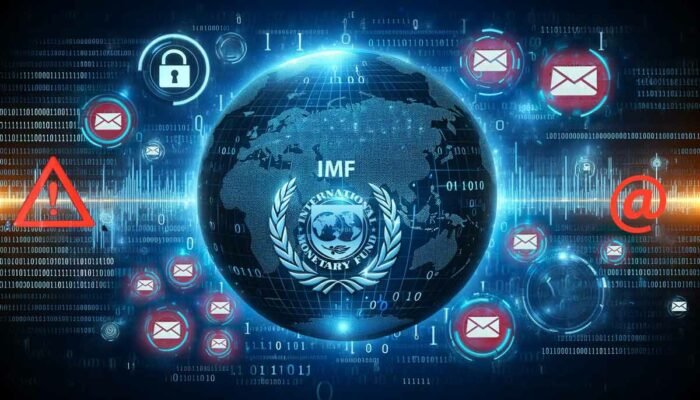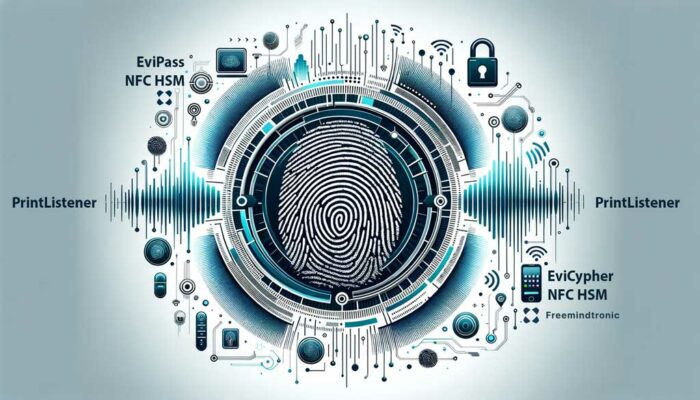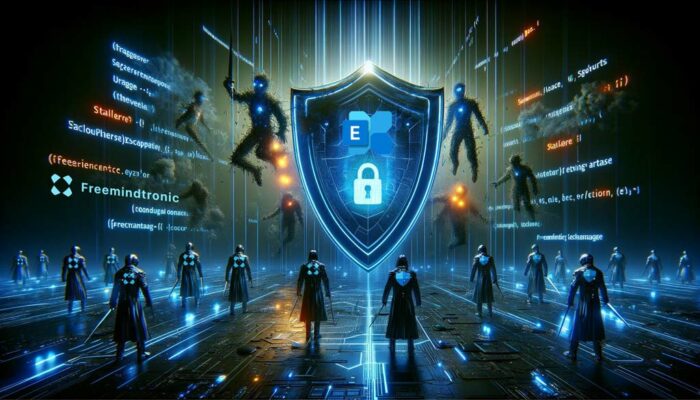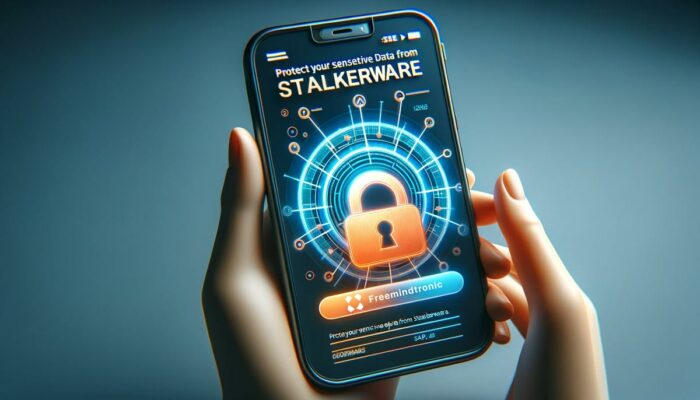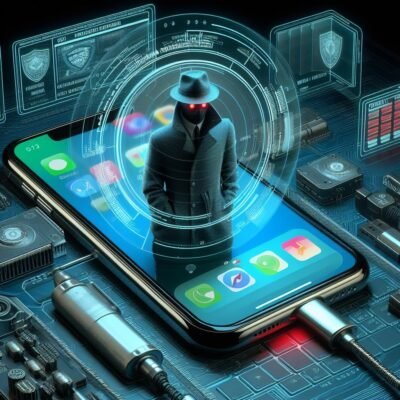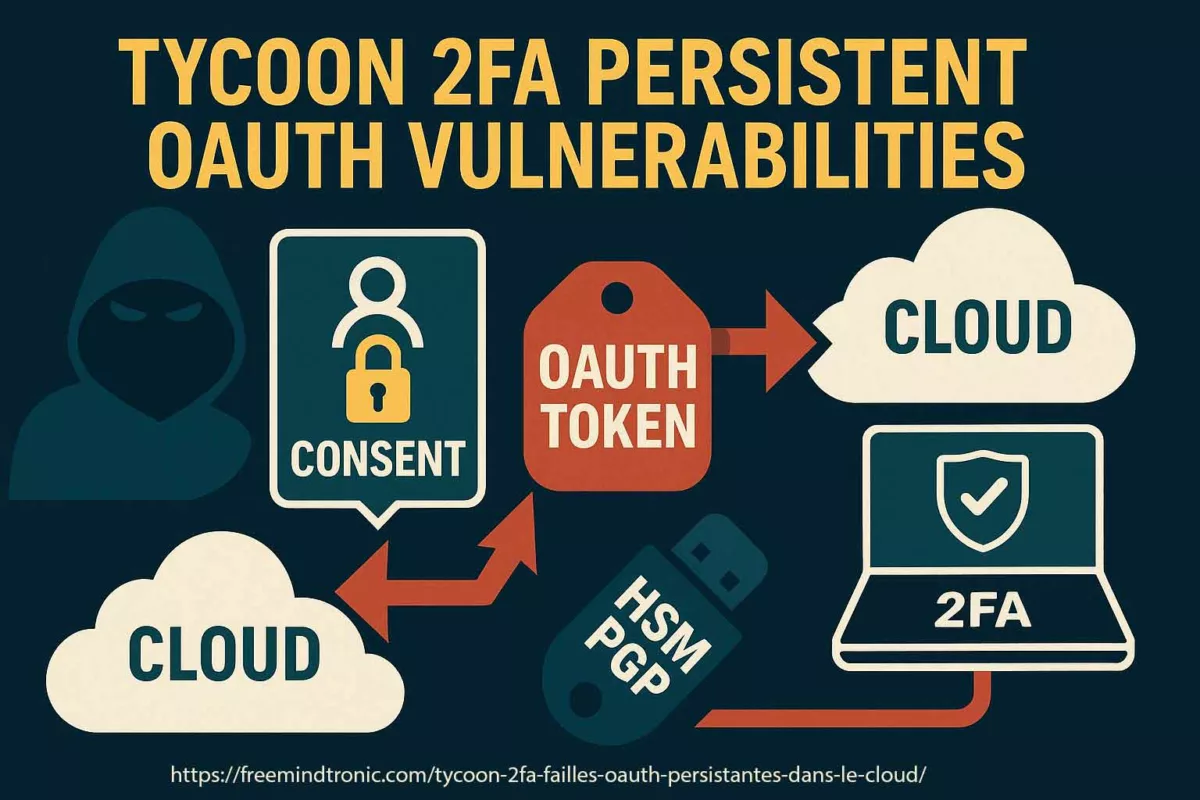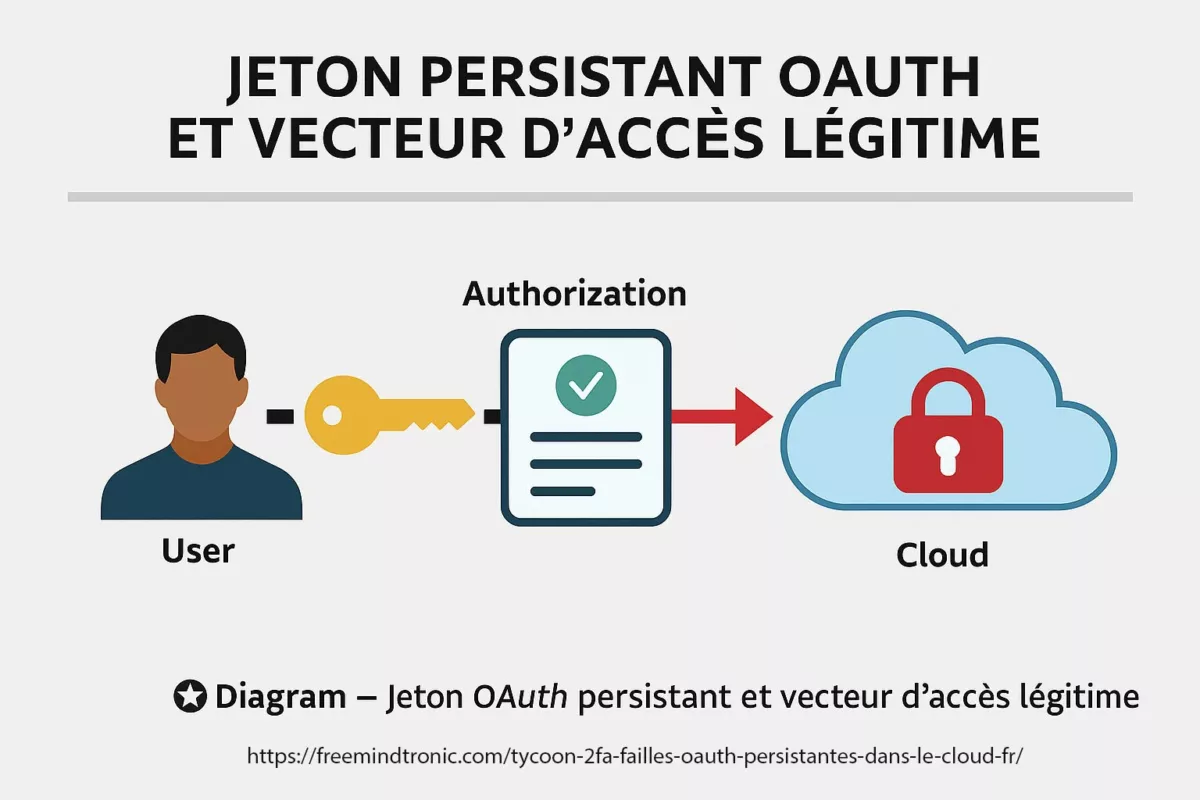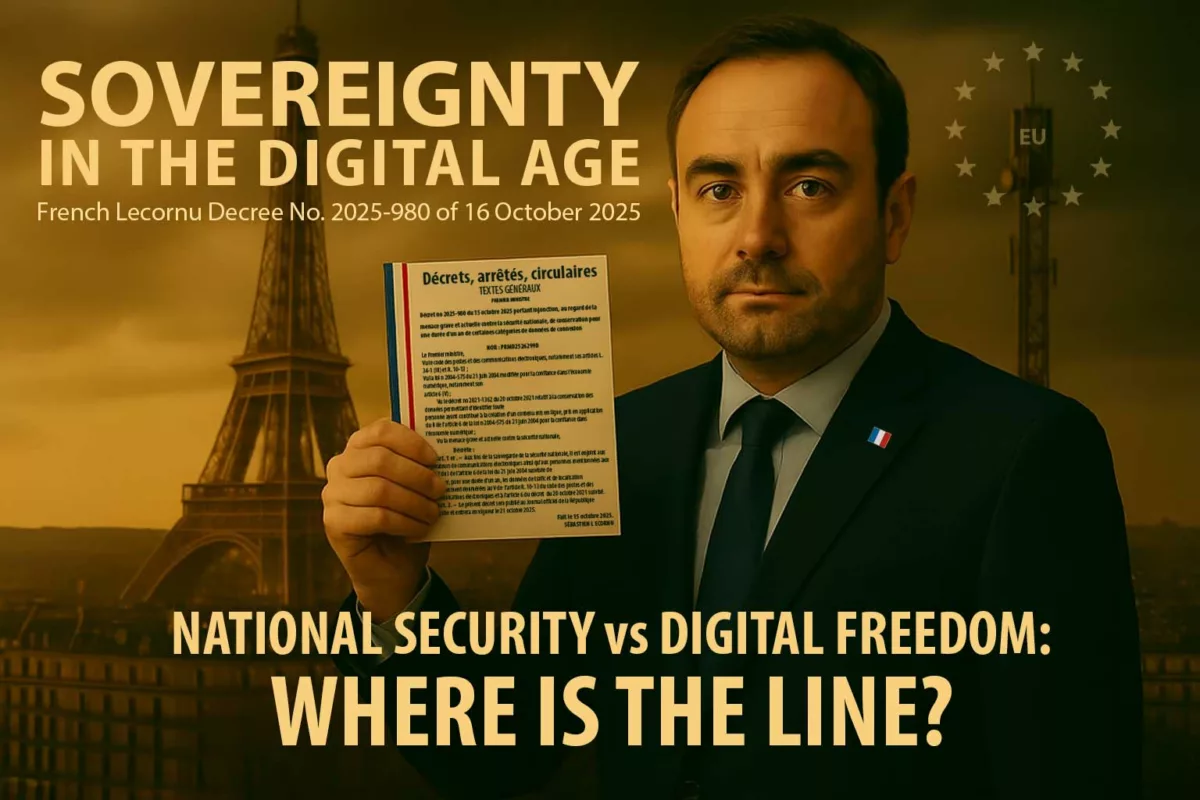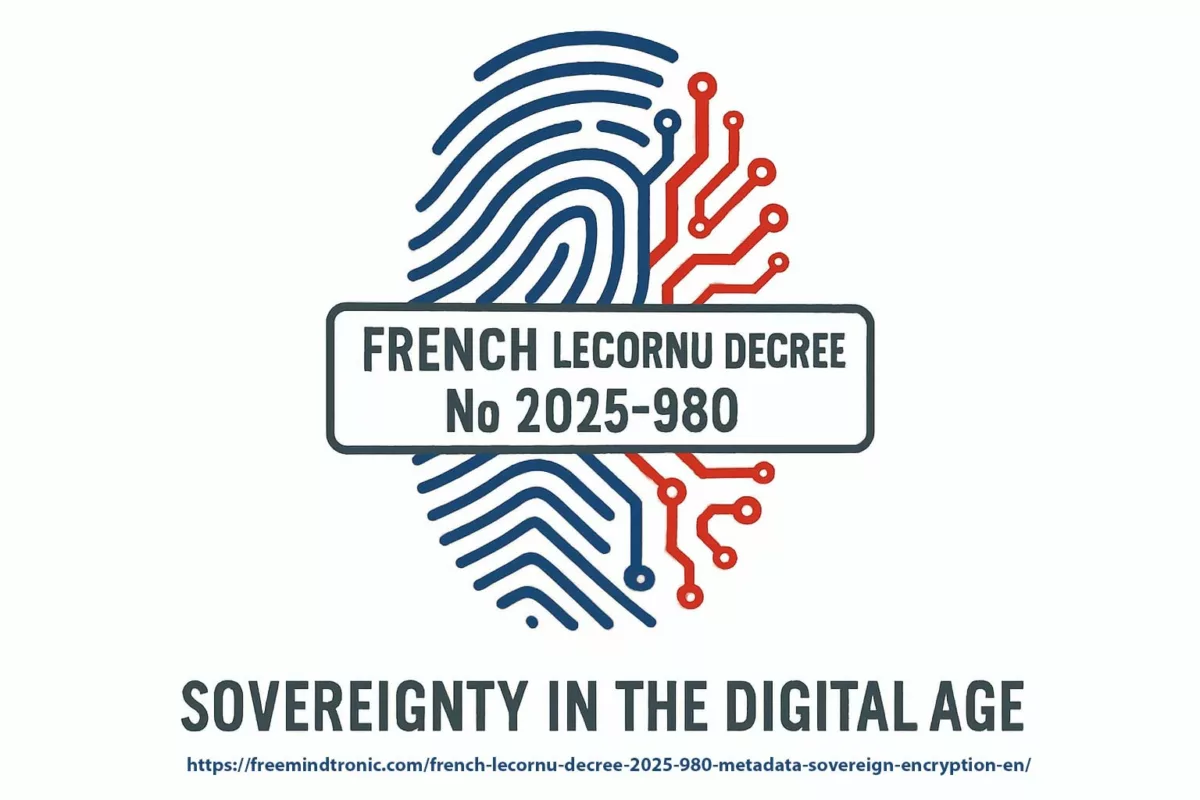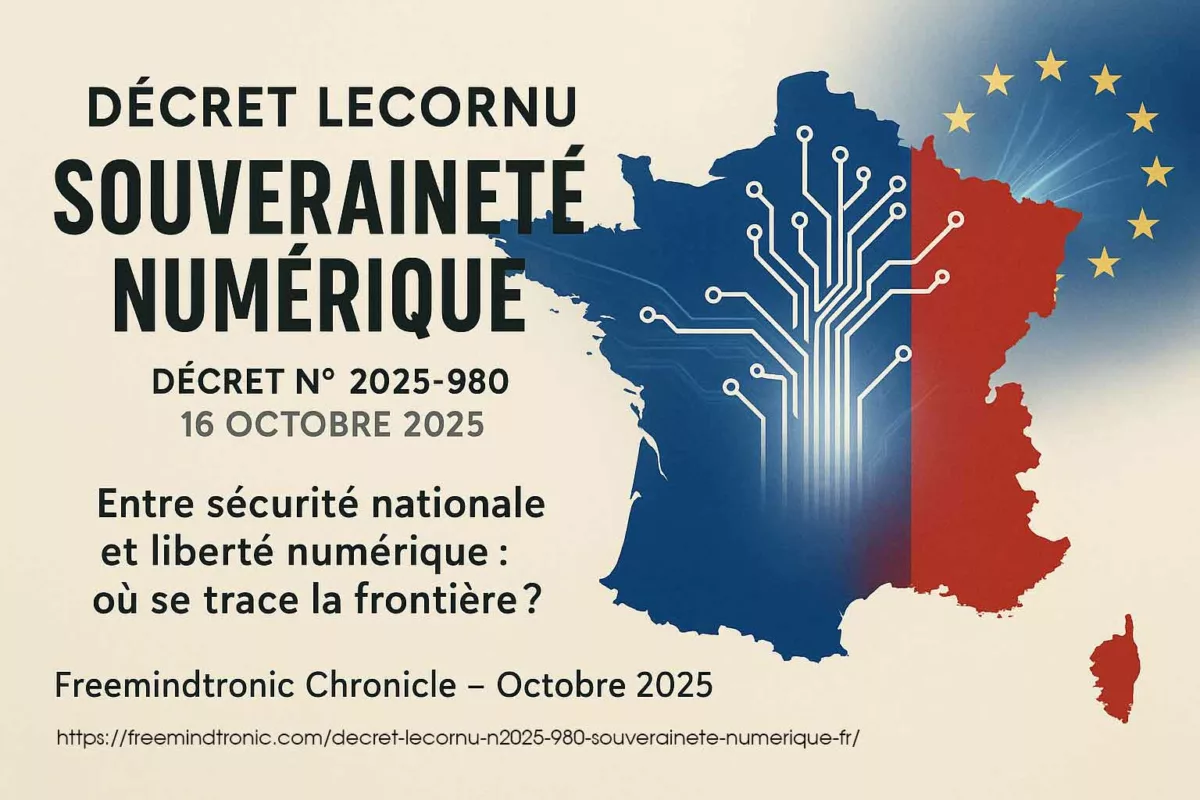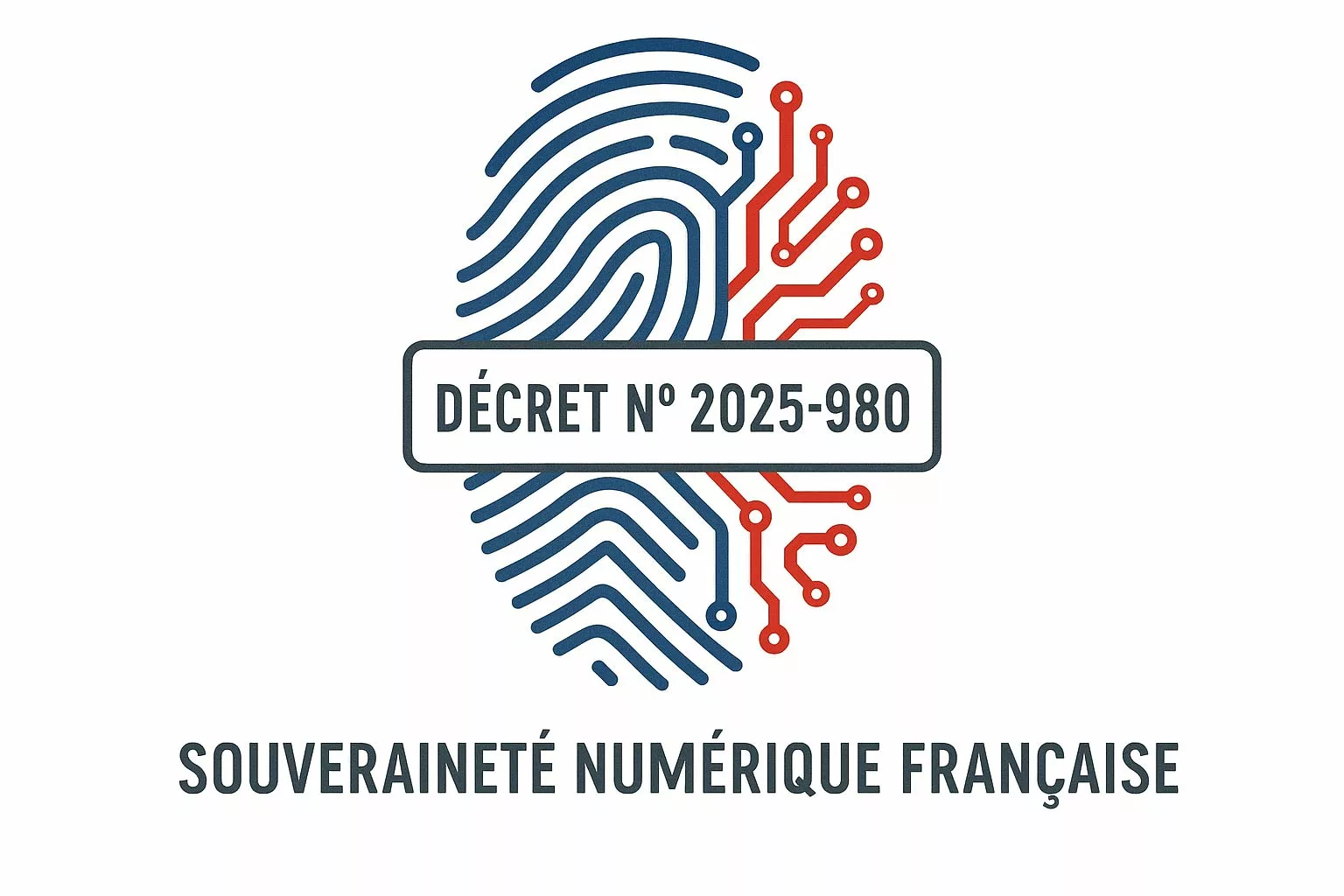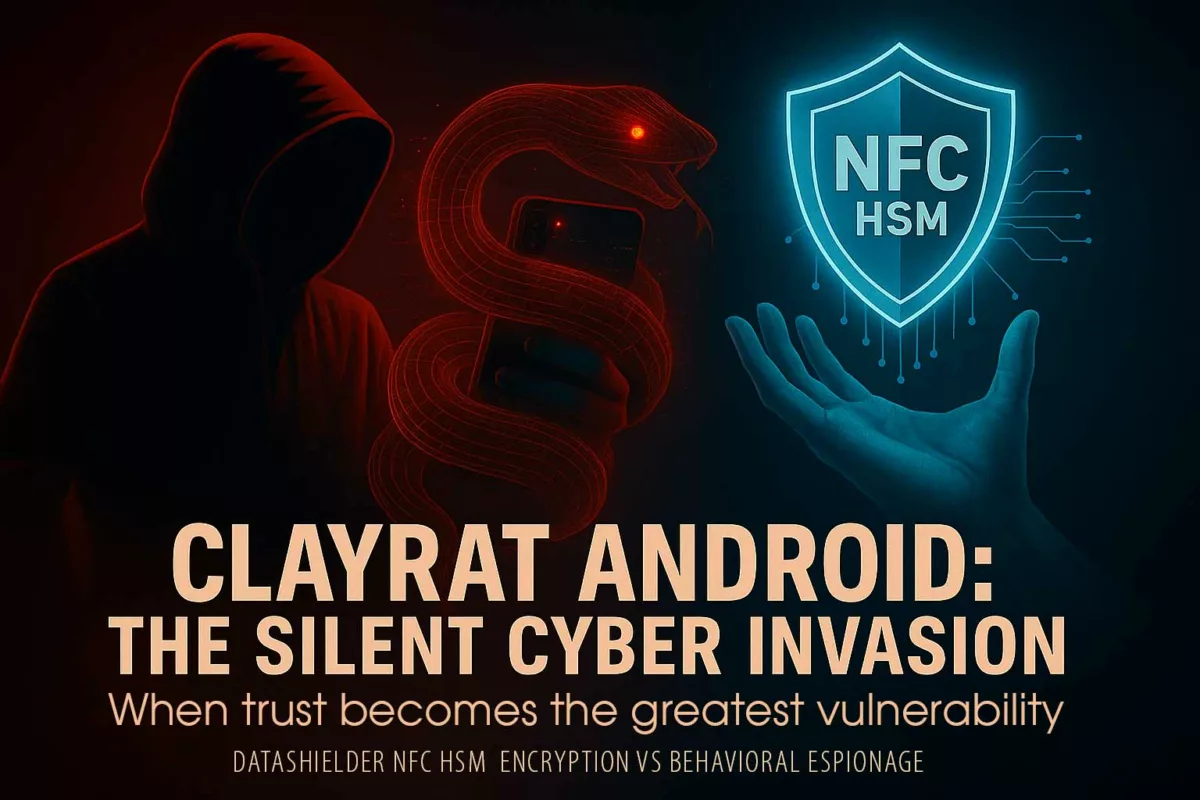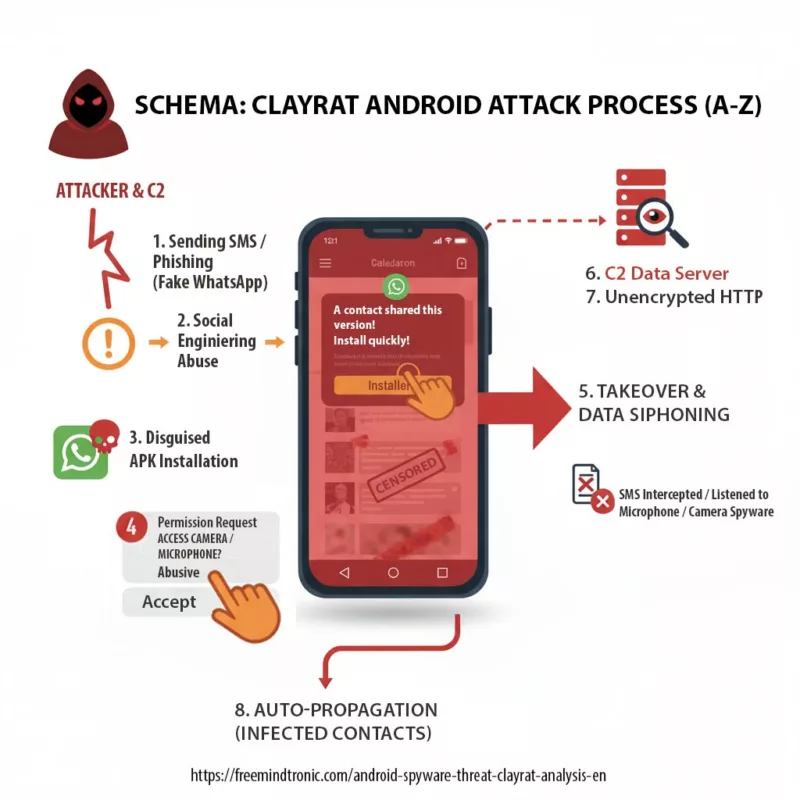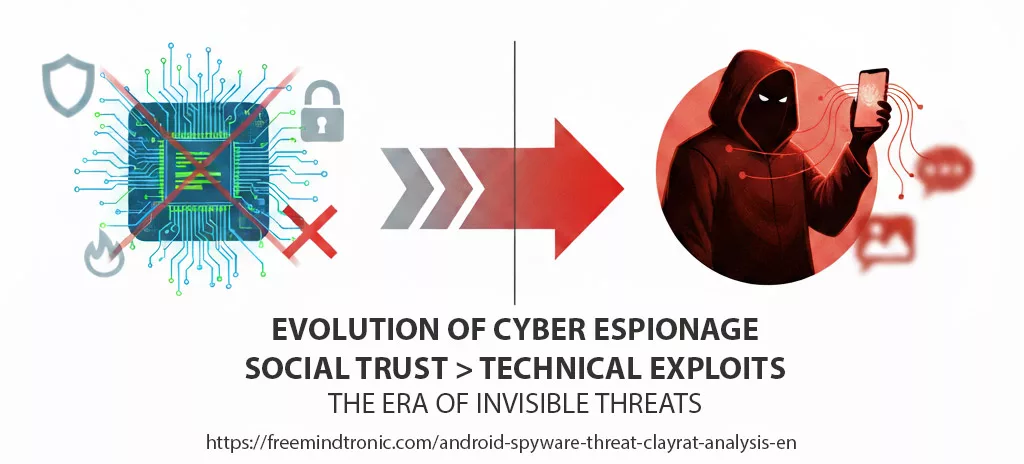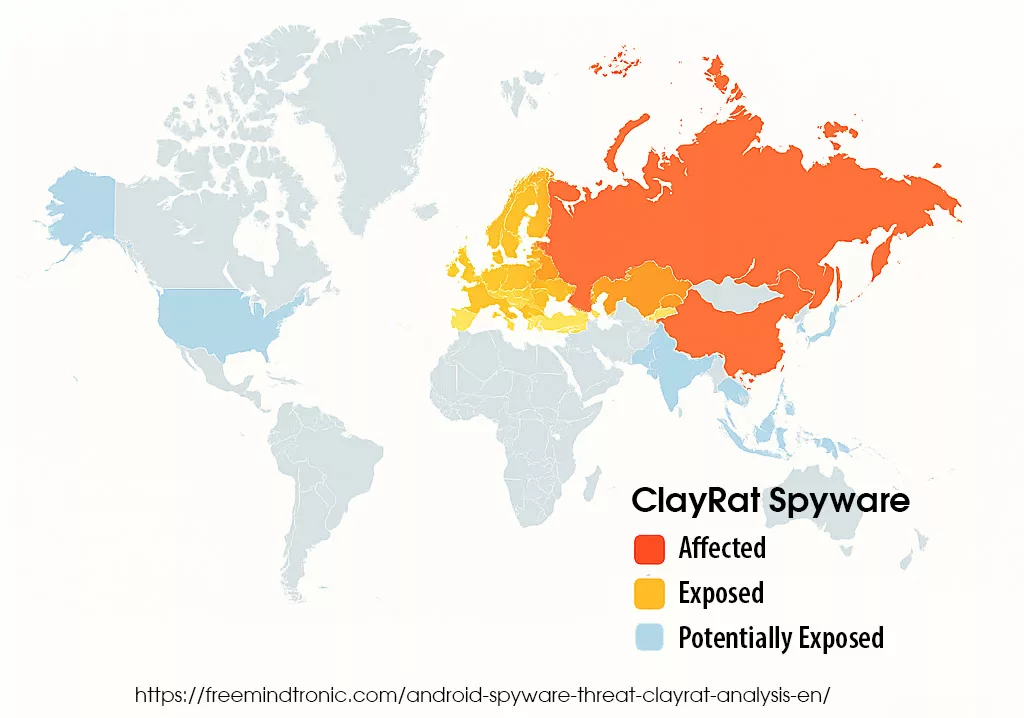PassCypher Finaliste officiel des Intersec Awards 2026 dans la catégorie “Best Cybersecurity Solution” marque une étape historique pour la cybersécurité souveraine. Présentée à Dubaï, au cœur des Émirats Arabes Unis, par Freemindtronic Andorre — une première pour une entreprise andorrane à ancrage européen — cette technologie hors-ligne souveraine propose une alternative passwordless universelle, déjà compatible avec tous les systèmes informatiques et web existants, référencée “Quantum-Resistant Offline Passwordless Security”. Cette approche n’est pas un schéma PQC mais une résistance structurelle (segmentation + volatilité). Fondée sur une architecture à mémoire volatile, le chiffrement AES-256-CBC et la sécurité PGP à segmentation de clés, elle protège identités et secrets numériques sans aucune dépendance au cloud. Une reconnaissance internationale confirmée sur le site officiel : liste des finalistes Intersec Awards 2026. Freemindtronic Andorre remercie l’équipe d’Intersec Dubaï et son jury international pour la reconnaissance de sa démarche d’innovation souveraine.
Résumé express
Lecture rapide (≈ 4 min) : La nomination de Freemindtronic Andorre parmi les finalistes des Intersec Awards 2026 dans la catégorie Best Cybersecurity Solution consacre bien plus qu’un produit : elle valide la maturité d’un écosystème souverain complet, articulé autour de PassCypher HSM PGP et PassCypher NFC HSM. Ces deux technologies incarnent une vision hors-ligne, indépendante et résistante aux menaces contemporaines. Elles sont issues de brevets français et conçues pour fonctionner en mémoire volatile — sans transfert, sans synchronisation et sans persistance.
Elle est nativement multilingue (14 langues) — العربية, Català, Deutsch, English, Français, हिंदी, Italiano, 日本の, Português, Românesc, Русский, Español, 简体中文 et Українська. Les traductions embarquées garantissent un usage air-gap sans aucune dépendance à des services de traduction en ligne.⚙ Un modèle souverain en action. Les solutions PassCypher HSM PGP et NFC HSM fonctionnent comme de véritables modules physiques de confiance. Elles exécutent localement toutes les opérations critiques — chiffrement PGP, signature, déchiffrement et authentification — sans serveur, sans cloud, sans tiers. Ce modèle passwordless hors-ligne repose sur la preuve de possession physique et la cryptologie embarquée. Une rupture avec les approches FIDO ou SaaS centralisé.
🌍 Portée internationale
Cette distinction positionne Freemindtronic Andorre parmi les cinq meilleures solutions mondiales en cybersécurité. Elle renforce son rôle de pionnier dans la protection souveraine hors-ligne et confirme la pertinence d’un modèle indépendant et interopérable — combinant ingénierie française, innovation andorrane et reconnaissance émiratie au cœur du plus grand salon mondial dédié à la sécurité et à la résilience numérique.
Solutions souveraine (offline)
Les deux produits PassCypher HSM PGP et PassCypher NFC HSM sont nativement traduits en 14 langues, dont l’arabe. Les traductions sont embarquées sur l’appareil (aucun appel à un service de traduction en ligne), ce qui garantit la confidentialité et la disponibilité air-gap.
Paramètres de lecture
Temps de lecture résumé express : ≈ 4 minutes
Temps de lecture résumé avancé : ≈ 6 minutes
Temps de lecture chronique complète : ≈ 35 minutes
Date de publication : 2025-10-30
Dernière mise à jour : 2025-10-31
Niveau de complexité : Expert — Cryptologie & Souveraineté
Densité technique : ≈ 79 %
Langues disponibles : FR · CAT· EN· ES ·AR
Spécificité : Analyse souveraine — Freemindtronic Andorre, Intersec Dubaï, cybersécurité hors-ligne
Ordre de lecture : Résumé → Doctrine → Architecture → Impacts → Portée internationale
Accessibilité : Optimisé pour lecteurs d’écran — ancres & balises structurées
Type éditorial : Billet spécial Awards — Finaliste Best Cybersecurity Solution
Niveau d’enjeu : 8.1 / 10 — portée internationale, cryptologique et stratégique
À propos de l’auteur : Jacques Gascuel, inventeur et fondateur de Freemindtronic Andorre, expert en architectures HSM, souveraineté cryptographique et sécurité offline.
Références officielles et relais médias
☰ Navigation rapide
- 🔝 Retour en haut
- Résumé express — Un écosystème souverain validé
- Résumé avancé — Doctrine et portée stratégique
- Chronicle — Souveraineté validée à Dubaï
- Contexte officiel — Intersec Awards 2026
- L’innovation PassCypher — Souveraineté, sécurité et indépendance
- Une innovation andorrane à ancrage européen
- Souveraineté validée — Vers un modèle indépendant
- Portée internationale — Modèle global souverain
- Souveraineté consolidée — Vers un standard international
- Questions fréquentes
Les billets affichés ci-dessus ↑ appartiennent à la même rubrique éditoriale distinction Awards — Sécurité Digitale. Ils prolongent l’analyse des enjeux de souveraineté et de gestion hors-ligne des secrets, en lien direct avec la reconnaissance de PassCypher à Intersec Dubaï.
⮞ Préambule — Une reconnaissance internationale et institutionnelle
Freemindtronic Andorre adresse ses remerciements sincères au jury international et à Messe Frankfurt Middle East, organisateur des Intersec Awards, pour la qualité, la rigueur et la portée mondiale de ce concours dédié à la sécurité, à la souveraineté et à l’innovation. Cette distinction, décernée à Dubaï — au cœur des Émirats Arabes Unis —, confirme la reconnaissance d’une innovation andorrane à ancrage européen qui s’impose comme un modèle d’authentification passwordless souveraine, quantum-resistant et hors-ligne. Elle illustre également la volonté partagée, entre l’Europe et le monde arabe, de promouvoir des architectures numériques fondées sur la confiance, la neutralité et la résilience technologique.
Résumé avancé
Temps de lecture (≈ 6 min)
Le statut de finaliste des Intersec Awards 2026 dans la catégorie Best Cybersecurity Solution distingue PassCypher non seulement comme une innovation technologique, mais comme une doctrine souveraine à part entière. Cette nomination est historique : c’est la première fois qu’une solution andorrane, conçue à partir de brevets français et opérant sans aucune dépendance réseau, est reconnue sur la scène mondiale comme alternative crédible aux architectures centralisées des grandes puissances numériques.
↪ Une architecture hors-ligne fondée sur la mémoire volatile
L’écosystème PassCypher repose sur un principe inédit : toutes les opérations critiques — stockage, dérivation, authentification, gestion de clés — s’effectuent exclusivement en mémoire volatile. Aucune donnée n’est écrite, synchronisée ni conservée dans un espace persistant. Cette approche élimine par conception les vecteurs d’interception, d’espionnage et de compromission post-exécution, y compris face à des menaces quantiques.
↪ Segmentation et souveraineté des secrets
Le système applique une segmentation dynamique des clés qui découple chaque secret de son contexte d’usage. Chaque instance PassCypher agit comme un micro-HSM autonome : elle isole les identités, vérifie localement les droits et détruit instantanément toute donnée après usage. Ce modèle de sécurité « par effacement » s’oppose aux paradigmes FIDO et SaaS, où la persistance et la délégation constituent des points de vulnérabilité structurels.
↪ Une reconnaissance symbolique pour la doctrine souveraine
L’inscription de Freemindtronic Andorre parmi les finalistes 2026 consacre la souveraineté technologique comme vecteur d’innovation internationale. Dans un paysage dominé par les solutions cloud, PassCypher démontre que la déconnexion maîtrisée peut devenir un atout stratégique, garantissant indépendance réglementaire, conformité RGPD/NIS2, et résilience face aux interdépendances industrielles.
↪ Portée géopolitique et doctrinale
Cette reconnaissance confère à Andorre un rôle inédit : celui d’un laboratoire numérique au sein de l’espace européen élargi. Freemindtronic y défend un modèle d’innovation souverain — andorran par sa neutralité, français par sa filiation technologique, européen par sa vision.
En intégrant la catégorie “Best Cybersecurity Solution”, PassCypher devient le symbole d’un équilibre stratégique entre indépendance cryptologique et interopérabilité normative.
⮞ Extension de reconnaissance internationale
La portée mondiale de PassCypher s’étend désormais au domaine de la sécurité de défense. La solution a également été présentée sur le stand AMG PRO lors du salon MILIPOL 2025 — Stand 5T158 — en tant que partenaire français officiel de Freemindtronic Andorre pour ses technologies à double usage civil et militaire. Cette présence confirme la reconnaissance de PassCypher comme solution de référence en cybersécurité souveraine, adaptée aux besoins de défense, de résilience et d’industrie critique.
⮞ En synthèse
L’écosystème PassCypher ne se définit pas comme un outil de chiffrement, mais comme une infrastructure souveraine de gestion des secrets numériques.Sa reconnaissance à Intersec 2026 confirme la pertinence d’un modèle fondé sur la protection hors-ligne, la mémoire éphémère et la sécurité segmentée — trois piliers d’une doctrine capable de réconcilier confiance, neutralité et autonomie technologique.
Chronique complète
L’annonce officielle de la sélection de Freemindtronic Andorre parmi les finalistes des Intersec Awards 2026 dans la catégorie “Best Cybersecurity Solution” marque un tournant historique à plusieurs titres. D’abord parce qu’il s’agit de la première entreprise andorrane distinguée dans cette catégorie, au sein du plus grand salon mondial dédié à la sécurité et à la résilience numérique. Ensuite parce que la solution en lice, PassCypher, repose sur une doctrine cryptologique hors-ligne, c’est-à-dire une approche totalement déconnectée, décentralisée et indépendante du cloud — une rupture stratégique dans un secteur encore dominé par les architectures connectées.
↪ Résilience algorithmique souveraine
Contrairement aux approches post-quantiques encore expérimentales, PassCypher repose sur une résilience algorithmique souveraine fondée sur la segmentation AES-256-CBC combinée à la sécurité PGP multicouches. Chaque clé est scindée en segments indépendants et temporaires, empêchant toute exploitation algorithmique, y compris par des attaques quantiques de type Grover ou Shor.
Il ne s’agit pas de cryptographie post-quantique, mais d’une résistance structurelle native, assurant une protection “quantum-resistant” par conception.
↪ Un événement à portée historique
La nomination à Dubaï consacre non seulement une technologie brevetée d’origine française, mais aussi un modèle de souveraineté andorrane appliquée à la cybersécurité. Elle symbolise la reconnaissance d’une vision : celle d’un écosystème capable d’assurer la protection des secrets numériques sans serveur, sans cloud, sans trace. À travers cette distinction, Intersec valide une approche quantum-resistant et éphémère : les données critiques temporaires ne quittent jamais la mémoire volatile du dispositif, assurant ainsi une confidentialité absolue, y compris après usage.
↪ Un symbole de convergence entre innovation et indépendance
Ce succès illustre la philosophie de Freemindtronic Andorre : faire de la sécurité déconnectée un vecteur d’indépendance stratégique. L’entreprise démontre qu’il est possible de garantir une authentification et une gestion de secrets entièrement autonomes, sans dépendre des grands systèmes d’identité centralisés (FIDO, SaaS, PKI cloud).Cette approche matérialise un concept inédit de résilience par déconnexion — une souveraineté technique et juridique où chaque utilisateur contrôle physiquement sa clé d’accès, son identité et son environnement de confiance.
↪ Intersec Awards 2026 — un écosystème sous les projecteurs
Les Intersec Awards, organisés à Dubaï sous l’égide de Messe Frankfurt Middle East, distinguent chaque année les acteurs mondiaux de la sécurité physique, numérique et industrielle.En 2026, la catégorie “Best Cybersecurity Solution” met en lumière les innovations capables de combiner performance, conformité et indépendance.La présence de Freemindtronic Andorre dans cette sélection atteste du rayonnement international d’une technologie souveraine portée par une doctrine de cybersécurité hors-ligne reconnue comme une alternative crédible aux standards globaux.
↪ Une première pour l’Andorre et pour la doctrine souveraine
Au-delà de la distinction elle-même, cette nomination incarne une première diplomatique et industrielle : celle d’une micro-nation positionnée au cœur des débats sur la souveraineté numérique. Andorre, État indépendant non membre de l’Union européenne, mais associé à son espace réglementaire, devient par cette reconnaissance un acteur de référence dans la conception de technologies à sécurité quantique neutres, interopérables et non-alignées. Ce positionnement unique renforce l’idée qu’une innovation souveraine peut émerger hors des grands pôles industriels traditionnels, et rayonner par la seule force de sa conception technique et de sa philosophie d’indépendance.
⮞ Points saillants Intersec 2026
- Événement : Intersec Awards 2026 — Conrad Dubai
- Catégorie : Best Cybersecurity Solution
- Finaliste : Freemindtronic Andorre — écosystème PassCypher
- Nature de l’innovation : Gestion souveraine des secrets numériques hors ligne
- Origine : Brevets d’invention français délivrés à l’international
- Architecture : Mémoire volatile · Résilience quantique · Absence de dépendance cloud
- Valeur doctrinale : Souveraineté technologique, géopolitique, indépendance cryptologique
- Validation officielle : Liste officielle des finalistes Intersec Awards 2026
Ce billet revient en détail sur la doctrine, les fondements techniques et la portée stratégique de cette reconnaissance — une validation institutionnelle internationale qui confirme qu’il est désormais possible de protéger les identités numériques sans jamais être connecté.
Les points clés à retenir sont :
- Passwordless souverain, 0 cloud, 0 serveur : preuve de possession physique.
- Interopérabilité universelle (web/systèmes) sans dépendance protocolaire.
- Résilience structurelle par segmentation de clés + mémoire volatile.
⚖️ Jury international — Intersec Awards 2026
Organisés au cœur de Dubaï, les Intersec Awards représentent depuis 2022 la référence mondiale pour la sécurité, la cybersécurité et la résilience technologique.
La 5ᵉ édition, prévue le 13 janvier 2026 au Conrad Dubai, distinguera les acteurs les plus innovants dans 17 catégories couvrant la sûreté physique, la cybersécurité, la sécurité incendie et la protection des infrastructures critiques.
Les finalistes de l’édition Intersec Awards 2026 ont été sélectionnés à l’issue d’un processus rigoureux conduit par un panel de 23 experts internationaux représentant cinq pays — les Émirats arabes unis, l’Arabie saoudite, le Royaume-Uni, le Canada et les États-Unis — issus des plus hautes instances de la sécurité, de la défense civile et de la cybersécurité.
Cette sélection illustre la portée mondiale et l’exigence du concours.
↪ Un jury international d’experts
Ce jury prestigieux comprend notamment des représentants de :
- Dubai Civil Defence — Lt Col. Dr. Essa Almutawa, Chief AI Officer
- UL Solutions — Ghaith Bakir, Senior Regulatory Engineer
- NFPA — Olga C. Caledonia, Director of International Development
- Institution of Occupational Safety & Health (IOSH) — Richard Bate, President Elect
- WSP Middle East — Rob Davies & Emanuel Jech, Directors
- ASIS International — Hamad Melaihi & Yacine Benamane, Senior Security Leaders
Pour la catégorie “Best Cybersecurity Solution”, la supervision a été assurée par Dr. Claude Fachkha (Associate Professor, University of Dubai) et Dana Haubold (CISO indépendante et consultante en cybersécurité).
C’est dans cette catégorie que Freemindtronic Andorra et sa solution PassCypher ont été reconnues finalistes.
↪ Informations officielles
Présence au gala : Freemindtronic Andorra sera présente à Dubaï pour la remise des trophées, représentée par Thomas MEUNIER.
Événement : Intersec Awards 2026 — 5ᵉ édition
Lieu : Conrad Dubai, Émirats arabes unis
Date : 13 janvier 2026
Catégorie : Best Cybersecurity Solution
Nombre de catégories : 17
Jury : Panel international Intersec 2026
Finalistes : Liste officielle des finalistes Intersec Awards 2026
↪ Un concours international d’excellence
Les Intersec Awards sont aujourd’hui considérés comme l’un des événements majeurs du secteur de la cybersécurité mondiale.
>Ils rassemblent chaque année à Dubaï les leaders de la sécurité, les laboratoires d’innovation, les ministères et les entreprises pionnières des cinq continents.
>Cette reconnaissance s’inscrit dans un contexte où la souveraineté numérique devient un enjeu stratégique pour les États comme pour les entreprises.
↪ Une première pour Andorre et la cybersécurité souveraine
En devenant finaliste officiel des Intersec Awards 2026, Freemindtronic Andorra réalise une double première historique :
— la première entreprise andorrane à figurer parmi les finalistes d’un concours technologique international organisé aux Émirats arabes unis ;
— et la première solution souveraine hors ligne distinguée dans la catégorie “Best Cybersecurity Solution”.
Cette nomination confirme la reconnaissance d’un modèle alternatif, où la sécurité déconnectée et segmentée s’impose comme une voie d’excellence face aux architectures cloud traditionnelles.
↪ Un signal fort pour la coopération euro-émiratie
Cette distinction ouvre un dialogue inédit entre l’innovation européenne indépendante et les objectifs stratégiques des Émirats Arabes Unis en matière de résilience numérique et de sécurité des données.
>Le positionnement de PassCypher illustre parfaitement cette convergence : une technologie souveraine andorrane, ancrée dans une ingénierie française, reconnue par une institution émiratie internationale.
C’est une passerelle entre deux visions du futur numérique : la technologie et la sécurité stratégique.
📘 Découvrez la présentation officielle complète des Intersec Awards 2026 sur le site de Messe Frankfurt Middle East.
Après avoir présenté le contexte institutionnel des Intersec Awards 2026, il est temps de découvrir ce qu’il y a au cœur de l’innovation PassCypher.
L’innovation PassCypher — Souveraineté, Sécurité et Indépendance
Dans un paysage numérique dominé par les solutions cloud et les systèmes FIDO, l’écosystème PassCypher s’impose comme une alternative souveraine de rupture.
>Cette innovation repose sur un socle cryptographique exclusif, fondé sur la mémoire volatile, le chiffrement AES-256-CBC et la sécurité PGP à segmentation dynamique.
↪ Deux piliers d’un même écosystème souverain
Les solutions PassCypher HSM PGP et PassCypher NFC HSM incarnent deux expressions complémentaires d’une même vision :
- PassCypher HSM PGP : gestionnaire de mots de passe et secrets souverain pour ordinateur, totalement hors-ligne, exécutant toutes les opérations cryptographiques en mémoire volatile pour une authentification passwordless.
- PassCypher NFC HSM : version matérielle portable pour téléphone Android NFC, transformant tout support NFC en module de sécurité physique, pour une authentification passwordless universelle.
Ces deux technologies interopérables entre elles fonctionnent sans serveur, sans cloud, sans synchronisation et sans dépendance à un tiers de confiance.
Elles garantissent que chaque secret, clé ou identité reste local, isolé et temporaire — un principe central de la cybersécurité souveraine.
↪ Localisation souveraine — traductions embarquées (offline)
- 14 langues supportées nativement, dont l’arabe (UI/UX et contenus d’aide).
- Traductions embarquées : aucune connexion réseau requise, pas de télémétrie, pas d’API tierce.
- Compatibilité droite-à-gauche (RTL) pour l’arabe ; cohérence typographique et mise en page sécurisée hors-ligne.
↪ Une authentification passwordless souveraine — sans FIDO, sans cloud
Contrairement aux modèles FIDO, où la validation repose sur des serveurs centralisés ou des clés d’identité biométriques, PassCypher adopte une approche 100 % indépendante et déconnectée.
>L’authentification repose sur la preuve de possession physique et la validation cryptologique locale : aucun service externe, aucune API cloud, aucun cookie persistant.
>Ce modèle passwordless souverain est déjà compatible avec tous les systèmes informatiques, navigateurs et plateformes web existants et téléphone Android avec technologie NFC (sans contact) — une interopérabilité universelle sans dépendance protocolaire.
⮞ Innovation qualifiée « Quantum-Resistant Offline Passwordless Security »
Lors de sa sélection officielle aux Intersec Awards 2026, la technologie PassCypher a été décrite comme une solution hors-ligne quantum-resistant.
>Cette expression souligne la résilience cryptographique du système face aux algorithmes quantiques connus, notamment Grover et Shor.
>Grâce à la segmentation AES-256-CBC et à l’architecture PGP multi-couches, chaque clé est rendue inutilisable isolément, empêchant toute exploitation algorithmique ou rétro-ingénierie.
Il ne s’agit pas de cryptographie post-quantique, mais d’une résistance structurelle par fragmentation logique et destruction contrôlée.
↪ Un modèle d’indépendance numérique et de confiance
L’approche PassCypher démontre qu’une cybersécurité sans cloud peut offrir un niveau de protection supérieur à celui des solutions centralisées.
>En combinant l’autonomie matérielle, la cryptologie locale et la non-persistance des données, elle redéfinit les bases de la confiance numérique : une sécurité par conception, et non par correction.
Freemindtronic propose ainsi un modèle où la souveraineté n’est pas un concept abstrait, mais une réalité technologique mesurable, interopérable et éprouvée dans des environnements civils, industriels et de défense.
Pour comprendre toute la portée de cette distinction, revenons sur les origines territoriales et doctrinales de cette innovation.
Une innovation andorrane, à ancrage européen, reconnue aux Émirats Arabes Unis
Après avoir mis en lumière les fondements techniques de l’écosystème PassCypher, il est essentiel d’en comprendre la portée institutionnelle et territoriale.
>Car au-delà de la technologie, cette nomination à Intersec Dubaï 2026 incarne une dynamique unique : celle d’une innovation andorrane à ancrage européen, reconnue sur la scène mondiale de la cybersécurité souveraine.
Ainsi, Freemindtronic Andorre devient le symbole d’un nouveau modèle d’équilibre numérique, passerelle entre les écosystèmes européens et les ambitions technologiques du monde arabe.
>Ce positionnement géographique et diplomatique singulier favorise la coopération entre régions stratégiques — l’Europe, les Émirats Arabes Unis, et les acteurs transcontinentaux de la résilience numérique.
↪ Entre racines françaises et implantation andorrane
L’histoire de PassCypher commence en Andorre en septembre 2016, avec l’implémentation de brevets d’origine française délivrés à l’international. Ce socle scientifique porte une technologie aujourd’hui conçue, développée et produite en Andorre, et dont le NFC HSM est fabriqué en Andorre et en France par le Groupe Syselec, partenaire industriel historique de Freemindtronic.
>Cette double identité — franco-andorrane par sa filiation technologique et andorrane par sa gouvernance souveraine — offre un modèle inédit de coopération industrielle européenne.
Elle permet à Freemindtronic de se positionner comme un acteur neutre, indépendant des alliances politiques, tout en s’inscrivant dans une vision d’innovation partagée.
Par ailleurs, l’Andorre, de par son positionnement géographique entre la France et l’Espagne, représente un terrain idéal pour le développement de technologies de confiance et de souveraineté.
>Cette singularité confère à Freemindtronic une capacité rare : celle de concevoir des solutions universelles, compatibles avec toutes les législations, sans dépendance d’infrastructure étrangère.
↪ Une reconnaissance à portée symbolique et stratégique
La sélection de PassCypher aux Intersec Awards 2026 revêt donc une signification bien plus large que la simple réussite technique.
>Elle consacre une approche européenne indépendante qui s’exporte et s’impose dans un contexte international exigeant — celui des Émirats Arabes Unis, pôle mondial de l’innovation en sécurité.
>Cette reconnaissance démontre que l’Europe, et en particulier ses territoires neutres comme l’Andorre, peuvent jouer un rôle d’équilibre entre les blocs technologiques dominants.
↪ Une passerelle entre deux visions de la souveraineté
D’un côté, l’Europe cherche à renforcer sa souveraineté numérique à travers la réglementation (RGPD, NIS2, DORA).
>De l’autre, les Émirats Arabes Unis bâtissent un modèle de cybersécurité d’État, centré sur la résilience et l’autonomie technologique.
>La distinction de Freemindtronic Andorre à Dubaï relie ces deux visions, en prouvant qu’une innovation souveraine peut devenir un pont stratégique entre régulations européennes et ambitions émiraties.
↪ Doctrine andorrane de souveraineté numérique
Freemindtronic Andorre incarne un modèle de souveraineté numérique qui échappe aux dépendances géopolitiques. L’Andorre devient ainsi un laboratoire européen technologique — un espace où les doctrines de cybersécurité de l’Union européenne et les ambitions d’indépendance des Émirats arabes unis se rencontrent. Ce modèle repose sur trois principes : innovation souveraine, indépendance réglementaire et interopérabilité universelle.
⮞ Transition
Cette reconnaissance institutionnelle ouvre la voie au chapitre suivant : celui de la première historique d’un gestionnaire de mots de passe passwordless distingué dans un concours technologique aux Émirats Arabes Unis. C’est un jalon sans précédent, qui marque l’entrée de l’écosystème PassCypher dans l’histoire des grands prix internationaux de la cybersécurité.
Typologie doctrinale — Ce que PassCypher n’est pas
Avant d’aborder la notion de souveraineté validée, il est essentiel de préciser ce que PassCypher n’est pas.
Ce cadre comparatif permet de situer clairement la rupture technologique et doctrinale portée par Freemindtronic Andorre.
| Modèle | PassCypher est-il concerné ? | Pourquoi |
|---|---|---|
| Gestionnaire cloud | ❌ | Aucune donnée transférée ni synchronisée |
| FIDO / Passkeys | ❌ | Validation locale, sans fédération d’identité |
| Open-source | ❌ | Architecture brevetée, doctrine souveraine |
| SaaS / SSO | ❌ | Aucun backend, aucune délégation |
| Coffre-fort local | ❌ | Aucune persistance, données en mémoire volatile |
| Zero Trust réseau | ✔️ Complémenté |
Doctrine Zero-DOM : sécurité hors réseau |
Cette approche clarifie le positionnement unique de PassCypher, à la fois hors-ligne, souverain et universellement interopérable, tout en s’affranchissant des paradigmes cloud ou FIDO.
Souveraineté validée — Vers un modèle international de cybersécurité indépendante
À ce stade de l’analyse, il devient évident que la distinction reçue par Freemindtronic Andorre ne représente pas seulement un succès technologique, mais un véritable tournant doctrinal.
>Après avoir démontré la viabilité d’une architecture hors-ligne souveraine et la pertinence d’une résilience cryptographique segmentée, cette reconnaissance internationale vient désormais valider un modèle complet de cybersécurité indépendante.
↪ Une validation institutionnelle de la doctrine souveraine
La sélection officielle de PassCypher parmi les finalistes des Intersec Awards 2026 consacre une approche qui s’inscrit pleinement dans la doctrine émergente de la souveraineté numérique mondiale.
>Cette distinction ne se limite pas à la technologie ; elle légitime une philosophie : celle de la sécurité déconnectée, contrôlée et autoportée.
>En d’autres termes, la souveraineté validée par Intersec signifie qu’il est désormais possible de protéger les secrets numériques sans cloud, sans dépendance et sans délégation — tout en respectant les exigences internationales de conformité (RGPD, NIS2, ISO/IEC 27001).
De plus, cette validation s’inscrit dans un mouvement global où les institutions recherchent des solutions capables d’assurer la continuité d’accès sécurisée dans des environnements hybrides ou sensibles.
>Ainsi, PassCypher se distingue non seulement par son efficacité cryptologique, mais aussi par sa capacité à répondre à une préoccupation stratégique : garantir l’indépendance numérique des acteurs publics et privés, quelles que soient leurs infrastructures.
↪ Une réponse aux dépendances systémiques mondiales
Alors que la majorité des solutions de cybersécurité reposent sur des architectures connectées, PassCypher démontre qu’un autre paradigme est possible.
>Par conception, son fonctionnement en mémoire volatile et sa non-persistance des données éliminent les risques liés à la centralisation.
>Ce modèle redéfinit la notion même de confiance numérique : il ne s’agit plus de “faire confiance à un tiers”, mais de “ne dépendre d’aucun”.
Cette approche prend une résonance particulière dans un contexte international marqué par l’augmentation des cyberattaques, la prolifération des services SaaS et la course à la standardisation du passwordless.
>À contre-courant, Freemindtronic Andorre prouve qu’une solution souveraine peut rivaliser avec les plus grandes infrastructures globales tout en préservant la liberté des utilisateurs.
↪ Vers un standard mondial de cybersécurité indépendante
En combinant souveraineté, compatibilité universelle et résilience cryptographique, PassCypher esquisse les contours d’un futur standard international.
>Ce modèle — quantum-resistant, offline et passwordless — répond aux exigences convergentes des États, des organisations internationales et des secteurs critiques : défense, énergie, santé, finance, et diplomatie.
>Chaque entité peut ainsi disposer d’une cybersécurité de confiance totalement indépendante de tout prestataire cloud, sans pour autant renoncer à l’interopérabilité globale.
À travers cette reconnaissance à Dubaï, Intersec ne salue donc pas seulement une innovation, mais reconnaît la naissance d’un nouveau paradigme de sécurité numérique mondiale.
>C’est une étape décisive vers un standard souverain universel, où la protection hors-ligne devient le fondement d’une souveraineté numérique accessible à tous.
⮞ Transition — Vers la consolidation doctrinale
Cette reconnaissance marque donc la consolidation d’un écosystème complet, où la technologie, et la souveraineté se rejoignent pour fonder une nouvelle norme internationale de confiance.
>Dans le chapitre suivant, seront détaillées les bases cryptologiques et les architectures PassCypher qui structurent ce modèle : mémoire volatile, sécurité segmentée et résilience quantique.
Portée internationale — Vers un modèle global de cybersécurité souveraine
À ce stade de l’analyse, il est évident que la reconnaissance de PassCypher dépasse le cadre d’un simple concours technologique. En réalité, elle marque la confirmation internationale d’une doctrine européenne, née en Andorre, et désormais considérée comme un modèle global de cybersécurité souveraine. Ainsi, la portée de cette distinction s’étend bien au-delà des frontières institutionnelles : elle redéfinit la manière dont la sécurité numérique peut être conçue, gouvernée et certifiée.
↪ Une reconnaissance qui transcende les frontières
La distinction obtenue à Dubaï lors des Intersec Awards 2026 intervient dans un contexte géopolitique où la souveraineté numérique s’impose comme une priorité mondiale. En étant finaliste dans la catégorie “Best Cybersecurity Solution”, Freemindtronic Andorre positionne son écosystème comme une référence transcontinentale entre l’Europe et le Moyen-Orient. De plus, cette reconnaissance symbolise un mouvement de convergence : celui d’une technologie européenne indépendante, reconnue au sein d’un espace d’innovation arabo-émirati particulièrement exigeant. Ce dialogue technologique illustre une évolution majeure : l’alliance entre innovation souveraine européenne et vision stratégique émiratie. D’un côté, l’Europe promeut la confiance et la conformité ; de l’autre, les Émirats Arabes Unis valorisent la résilience et la neutralité opérationnelle. Entre ces deux pôles, PassCypher s’impose comme une passerelle d’interopérabilité sécurisée.
↪ Une vitrine mondiale de la cybersécurité déconnectée
Grâce à cette distinction, Freemindtronic Andorre entre dans le cercle restreint des acteurs mondiaux capables de proposer une cybersécurité de confiance hors-ligne. Présentée sur la scène internationale, cette technologie suscite l’intérêt des secteurs gouvernementaux, industriels et de défense à la recherche de solutions indépendantes du cloud. Elle démontre qu’il est possible de conjuguer protection des données, neutralité géopolitique et interopérabilité technique — trois conditions désormais essentielles à la cybersécurité du XXIᵉ siècle. De plus, cette reconnaissance internationale consolide la position de Freemindtronic comme acteur clé de la résilience numérique européenne. Ses innovations, reconnues à la fois par les institutions européennes et les organismes de sécurité du Golfe, participent activement à la construction d’un écosystème mondial de cybersécurité souveraine.
↪ Une étape vers un standard mondial souverain
À travers PassCypher, une nouvelle norme de cybersécurité se dessine : celle d’un standard souverain universel, où chaque nation peut disposer d’une architecture de sécurité indépendante et conforme à ses exigences. Cette approche, basée sur la volatilité des données et la non-centralisation, pourrait à terme inspirer les futures directives internationales sur la sécurité des identités numériques et la gestion des secrets. En effet, plusieurs organisations transrégionales — européennes, arabes et asiatiques — s’intéressent déjà à ce modèle hybride, capable de réconcilier sécurité technique et indépendance réglementaire. Ainsi, la reconnaissance d’Intersec agit comme un accélérateur de convergence normative : un point de jonction entre doctrines souveraines nationales et standards internationaux émergents.
↪ De la distinction à la diffusion
L’impact de cette reconnaissance dépasse largement la sphère institutionnelle. En pratique, elle ouvre la voie à de nouvelles coopérations industrielles et à la création de partenariats de confiance entre États, entreprises et centres de recherche. La participation de Freemindtronic Andorre à des événements majeurs tels que MILIPOL 2025 ou Intersec Dubaï renforce la crédibilité de son approche duale — civile et militaire — et confirme l’intérêt croissant des acteurs publics pour des solutions de cybersécurité **hors-ligne, souveraines et interopérables**.
↪ Une trajectoire européenne d’envergure mondiale
Enfin, la reconnaissance d’Andorre à travers Freemindtronic symbolise la capacité d’un petit État à influencer les grands équilibres technologiques internationaux. À l’heure où les alliances numériques se polarisent entre blocs, la souveraineté andorrane apporte une vision alternative : celle d’une **innovation souveraine**, capable d’unir, plutôt que de diviser.
⮞ Transition — Vers la consolidation finale
Ainsi, cette portée internationale ne se résume pas à une distinction honorifique : elle représente la validation globale d’un modèle de cybersécurité indépendant, résilient et souverain. Dans la section suivante, nous conclurons ce billet en mettant en perspective la consolidation doctrinale de PassCypher et son rôle dans la définition d’un standard international de confiance numérique.
Souveraineté consolidée — Vers un standard international de confiance numérique
En conclusion, la reconnaissance de PassCypher lors des Intersec Awards 2026 ne se limite pas à une distinction honorifique : elle constitue la validation mondiale d’un modèle de cybersécurité souveraine, fondé sur la déconnexion maîtrisée et la résilience cryptologique. À travers cette reconnaissance, Freemindtronic Andorre confirme que la sécurité numérique du futur ne reposera pas sur la centralisation des identités, mais sur la propriété souveraine des secrets.
↪ La consolidation d’une doctrine universelle
Désormais, le concept de cybersécurité souveraine ne relève plus du manifeste mais du modèle éprouvé. Les technologies PassCypher HSM PGP et NFC HSM incarnent cette transition : elles prouvent qu’il est possible de conjuguer autonomie cryptographique, interopérabilité globale et résilience face aux menaces émergentes. De plus, cette consolidation doctrinale s’accompagne d’une reconnaissance transrégionale, reliant les écosystèmes européens, arabes et asiatiques autour d’une même idée : la cybersécurité de confiance ne peut exister sans souveraineté numérique. Ainsi, l’architecture hors-ligne et volatile de PassCypher devient une référence pour tous ceux qui cherchent à construire des systèmes d’authentification et de gestion des secrets sans dépendre d’autorités externes. Ce passage d’un prototype souverain à un écosystème global validé marque une étape clé dans la maturité de la cybersécurité internationale.
↪ Un catalyseur pour la normalisation mondiale
À moyen terme, la reconnaissance institutionnelle d’Intersec Dubaï agit comme un accélérateur de normalisation. Elle ouvre la voie à la création d’un cadre commun où la sécurité déconnectée et la protection segmentée des identités deviennent des critères universels de certification. En d’autres termes, PassCypher n’est pas seulement un produit. Il est le prototype fonctionnel d’un futur standard international. Ce modèle inspire déjà les discussions entre acteurs institutionnels, agences de normalisation et pôles de recherche. Et ce, tant en Europe qu’au Moyen-Orient. L’alliance entre conformité réglementaire (RGPD, NIS2, DORA) et innovation souveraine ouvre de nouvelles perspectives. Elle pourrait, à terme, fonder une norme de confiance numérique universelle.
↪ La souveraineté andorrane comme levier d’équilibre numérique
Par ailleurs, le rôle d’Andorre apparaît désormais central dans ce processus de reconnaissance. Sa neutralité politique et sa flexibilité réglementaire en font un laboratoire idéal pour l’innovation souveraine. De fait, la réussite de Freemindtronic Andorre prouve qu’un État indépendant peut devenir un acteur d’équilibre numérique entre les blocs technologiques dominants. Même si ce dernier est non membre de l’Union européenne mais ancré dans sa sphère économique et juridique. Ainsi, la distinction obtenue à Dubaï dépasse le cadre d’une récompense : elle symbolise l’émergence d’un nouveau centre de gravité pour la souveraineté numérique mondiale. Andorre bénéficie d’un positionnement stratégique et de solides partenariats industriels avec la France. Elle joue désormais un rôle d’intermédiation entre innovation, régulation et technologie.
↪ Un horizon partagé : confiance, neutralité, indépendance
À travers cette dynamique, PassCypher contribue à redéfinir le triptyque fondamental de la cybersécurité moderne :
- confiance — par la vérification locale ;
- neutralité — par l’absence d’intermédiaire ;
- indépendance — par la suppression de toute dépendance au cloud. Ce modèle s’impose progressivement comme un standard de confiance numérique, ouvert, interopérable et souverain.
Il offre une réponse claire à la question stratégique du siècle : comment protéger les secrets numériques sans sacrifier la liberté des utilisateurs ni la souveraineté des nations ?
“PassCypher n’est pas un gestionnaire de mots de passe. C’est un état cryptographique autonome, souverain et résilient, reconnu comme finaliste des Intersec Awards 2026.” — Freemindtronic Andorre, Dubaï · Janvier 2026
⮞ Signaux faibles identifiés
- Pattern: Demandes croissantes de passwordless sans cloud dans l’industrie critique.
- Vector: Convergence RGPD/NIS2 avec doctrines souveraines hors-réseau.
- Trend: Intérêt des salons défense (ex. Milipol) pour architectures RAM-only.
⮞ Cas d’usage souverain | Résilience avec Freemindtronic
Dans ce contexte, PassCypher HSM PGP et PassCypher NFC HSM neutralisent :
- Validation locale par preuve de possession (NFC/HID), sans serveur.
- Déchiffrement éphémère en RAM, aucune persistance.
- Segmentation dynamique PGP, isolement contextuel des secrets.
Questions fréquentes sur PassCypher et la cybersécurité souveraine
Votre question est pertinente.
Oui. PassCypher fonctionne en validation locale par preuve de possession, sans serveur ni cloud.
Il reste compatible avec les navigateurs et systèmes actuels.
Il ne dépend ni de FIDO ni de WebAuthn ; le modèle est offline, universel et interopérable.
Oui. L’arabe est supporté nativement et fonctionne hors-ligne (air-gap) avec compatibilité RTL. Les traductions sont 100% embarquées : aucune requête Internet.
PassCypher HSM PGP : 14 langues intégrées — العربية, Català, Deutsch, English, Français, हिंदी, Italiano, 日本語, Português, Românesc, Русский, Español, 简体中文 , Українська.
PassCypher NFC HSM : 14 langues — les 13 ci-dessus + Українська.
Distinction fondamentale
Contrairement aux passkeys FIDO, qui reposent sur l’écosystème WebAuthn et des intermédiaires d’identité, PassCypher opère sans fédération et sans serveur.
Son chiffrement et son authentification s’effectuent en mémoire volatile, avec segmentation des clés et sans stockage persistant.
Précision sur les vulnérabilités WebAuthn
Non. Les démonstrations DEF CON 33 ont ciblé des vecteurs liés aux extensions DOM, au clickjacking et à l’interception WebAuthn.
Références :
PassCypher n’est pas concerné : il n’utilise ni extensions navigateur ni WebAuthn.
Toutes les opérations sont locales et éphémères (RAM-only).
Avantage cryptologique
Le modèle RAM-only élimine les surfaces d’attaque liées au cloud, aux API, aux extensions et aux stockages persistants.
Les secrets sont créés, utilisés puis détruits en mémoire volatile.
La segmentation des clés empêche toute exploitation de fragments isolés.
Sans persistance ni intermédiaires, les vecteurs classiques d’exfiltration deviennent inopérants.
⮞ Aller plus loin — Solutions PassCypher à l’international
AMG PRO (Paris, France)
KUBB Secure de Bleu Jour (Toulouse, France)
- PassCypher HSM PGP Passwordless
- Clé USB Crystal PassCypher (offerte selon offre en cours)
- Émulateur de clavier Bluetooth pour PassCypher NFC HSM
- KUBB Secure Mini PassCypher NFC HSM (fanless)
Fullsecure Andorre
Ce n’est pas un schéma PQC : la protection vient d’une résistance structurelle (fragmentation/éphémérité) qualifiée “quantum-resistant” par conception.
⮞ Perspectives stratégiques
La reconnaissance de Freemindtronic Andorre à Intersec 2026 confirme une vérité simple.
La souveraineté n’est pas une contrainte, c’est une valeur technologique universelle.
En rendant possible une cybersécurité indépendante, PassCypher incarne la convergence entre innovation, confiance et autonomie.
Ainsi, il ouvre la voie à une ère nouvelle : celle d’un standard mondial de confiance numérique. Né en Andorre, reconnu à Dubaï, et appelé à transformer durablement la façon dont le monde conçoit la sécurité des identités.
